austinbar.org
JUNE 2023 | VOLUME 32, NUMBER 5
Austin Bar Members Win State Bar Elections
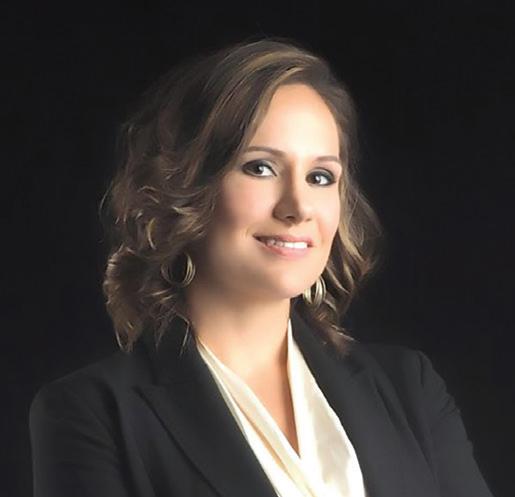
Benesh, Metayer, Jones Earn Positions at State Level
Former Austin Bar President Steve Benesh has been elected as the president-elect of the State Bar of Texas.
Results were finalized the evening of May 2, 2023. Supporters of Benesh gathered at Hilgers House for a viewing party.
Benesh will be sworn in as president-elect on June 22, 2023, and will serve as president of the State Bar from June 2024 to June 2025.
Benesh defeated his opponent, Dallas lawyer Jerry Alexander, by a margin of 52.41 percent (12,081 votes) to 47.59 percent (10,970 votes).
Benesh is currently a litigation partner at Bracewell LLP.
Benesh served as the Austin Bar’s president for the 2006-07 bar year. As president, Benesh founded and chaired the Austin Bar Foundation, of which he is a Life Fellow.
Benesh received the Austin Bar’s President’s Award for Outstanding Service in 2002 and again in 2003, and the State Bar’s Presidential Citation for Outstanding Service in 2014.
Benesh served as the fellows chair of the Texas Bar Foundation for the 2019-20 bar year. He has been rated a Texas Super Lawyer by Thomson Reuters for the years

2006-13 and 2016-22. He served on the State Bar’s board of directors in 2010-11, and from 2017 to the present.
Benesh served as president of the Robert W. Calvert American Inn of Court in 2020-21, and he served on the Inn’s executive committee from 2014 to 2022.

“Steve must have worn out several pairs of dress shoes walking the halls of law firms across Texas,” said former Austin Bar President Adam Schramek. “So glad to see the hard work pay off.”
“Congratulations, Mr. President,” said Catherine Tabor of Tabor Law Firm.
In an interview with the Texas
Bar Journal, Benesh addressed some of the issues that the legal profession in Texas currently faces.
“The State Bar should be vigilant when our right to self-governance is questioned both within and without the profession,” he said. “To address apathy on these issues, we need to be proactive in communicating with lawyers about why self-governance matters.”
Lawyer wellbeing is also of particular concern to Benesh.
“I would support and expand the incredible work of the Texas
Lawyers’ Assistance Program and ensure the funding of its wellness and acute care programs,” he said.
Benesh was also asked what the State Bar can do to better educate attorneys about how the lawyer discipline system works.
“While I believe the system in Texas generally works well, it’s nevertheless often confusing and frustrating,” he said. “The Ombudsman for Attorney Discipline has helped to address many of
continued on page 31
ABOVE (from left): Former Austin Bar President Steve Benesh has been elected president of the State Bar of Texas for the 2024-25 bar year. Rudy Metayer of Graves Dougherty Hearon & Moody has been elected to the State Bar board of directors for District 9, Place 1. Austin Lawyer Editor-in-Chief Rachael K. Jones has been elected to the Texas Young Lawyers Association’s board of directors for District 8, Place 1.
“We have to make sure every attorney in Texas—regardless of socio-demographic status, location, firm/office size, or area of practice—regards the SBOT as their bar. We need to ensure the SBOT’s committees and sections represent cross-sections of our profession.”
– Steve Benesh








Get started at lawpay.com/austinbar 866-730-4140 TOTAL: $1,500.00 New Case Reference **** **** **** 9995 *** Trust Payment IOLTA Deposit YOUR FIRM L OGO HERE PAY AT TO RNEY PO WE R ED BY 22% increase in cash flow with online payments Vetted and approved by all 50 state bars, 70+ local and specialty bars, the ABA, and the ALA 62% of bills sent online are paid in 24 hours Data based on an average of firm accounts receivables increases using online billing solutions. LawPay is a registered agent of Synovus Bank, Columbus, GA., and Fifth Third Bank, N.A., Cincinnati, OH. Trusted by 50,000 law firms, LawPay is a simple, secure solution that allows you to easily accept credit and eCheck payments online, in person, or through your favorite practice management tools. I love LawPay! I’m not sure why I waited so long to get it set up. –Law Firm in Ohio + Member Benefit Provider
FEATURED
DEPARTMENTS
6 President’s Column 12 Opening Statement 30 Entre Nous
CONNECTIONS ONLINE austinbar.org
EMAIL billy@austinbar.org

MAIL Austin Bar Association 712 W. 16th Street Austin, TX 78701

SOCIAL
LIKE facebook.com/austinbar

FOLLOW twitter.com/theaustinbar
WATCH vimeo.com/austinbar
NEWS & ANNOUNCEMENTS
Austin Bar Announces New Data Privacy Section
The Austin Bar is excited to announce the formation of its 27th substantive law section---the Data Privacy Section! This new section was unanimously approved by the Austin Bar board of directors on May 24. Be on the lookout in the coming weeks for more information about this cutting-edge new section!

UPCOMING
FOLLOW instagram.com/theaustinbar



TEXT austinbar to 313131 for up-to-date news + info Message & data rates may apply.

CONTENTS
E
ER AL AL RISK-TAKING CAN BE FUN... …BUT NOT WHEN IT’S A MALPRACTICE CLAIM. Personal Injury Claim* • Lawyer sued for allowing a default judgment taken against client • Damages of up to $4,000,000 sought ($200,000 policy limit) • TLIE settled case for $300,000 INSURED BY TLIE IF NOT INSURED Deductible $1,000 Defense costs $10,000 Amount over policy limit + $109,000 Settlement + $300,000 Total out-of-pocket = $110,000 Total out-of-pocket = $310,000 * Based on actual claim handled by TLIE. FIND OUT MORE: TLIE.ORG or (512) 480-9074 JUNE 2023 | VOLUME 32, NUMBER 5 JUNE 2023 | AUSTINLAWYER 3
INSID
austinbar.org ONLINE AU ST INL AW Y
JUNE 20 Entertainment & Sports Law Section Annual Meeting Zoom, 11 a.m. For more information and to RSVP, please visit austinbar.org. EVENTS
ARTICLES
Austin Bar Members Win State Bar Elections 4 Former Austin Bar President Selected as Chair-Elect of State Bar Board of Directors 20 Congratulations to Austin Bar Award Winners 22 Virtual Court Kiosk Opens in Austin 23 UT Law’s First-Time Bar Exam Pass Rate Increases 24 Jamal Alsaffar Reflects on Trial Strategy 26 CAPDS Forensic Project Saves Man from 60-Year Imprisonment by Dubunking Faulty DNA Evidence 27 Second Annual Drag & Justice Fundraiser Nearly Doubles Amount Raised in 2022 28 16th Annual Color of Justice Program Brings Together Students and Professionals 29 Texas Senate Celebrates Texas Women Judges Day IN EVERY ISSUE 8 Be Well 10 Briefs 14 AYLA 16 Federal Civil Court Update 17 Third Court of Appeals Civil Update 18 Third Court of Appeals Criminal Update 19 Texas Supreme Court Update
STREAM @AustinBarAssociation
1
Former Austin Bar President Selected as Chair-Elect of State Bar Board of Directors
Former Austin Bar President Kennon Wooten was selected as chairelect of the State Bar of Texas board of directors during the board’s quarterly meeting on April 28 in Waco.
Wooten, a partner at Scott Douglass & McConnico LLP in Austin, will take office in June and will serve as chair until June 2024.
Wooten served as the Austin Bar’s president for 2019-20 and the chair of the Austin Bar Foundation for 2020-21. She also currently serves on Austin Bar’s Diversity, Equity, and Inclusion (DEI) Committee. Wooten was editor of Austin Lawyer between 2013 and 2017, and was the Austin Young Lawyers Association’s president for 2012-13.
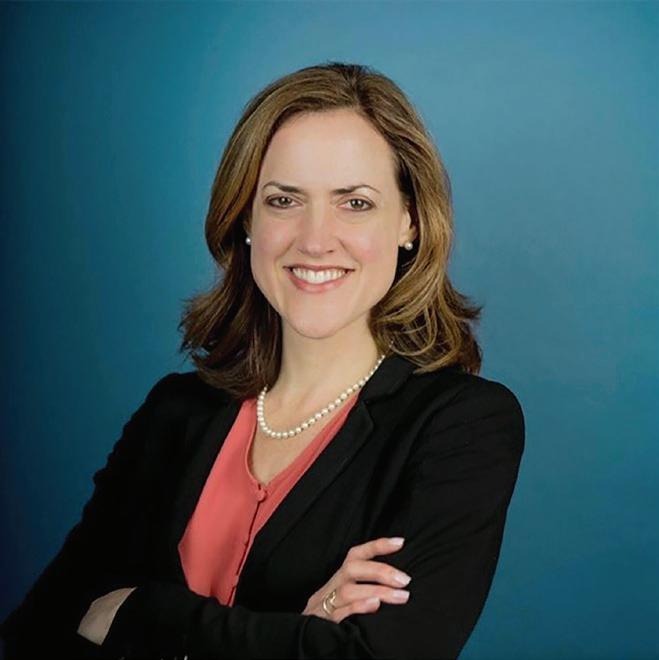
In 2021, Wooten was elected to represent District 9, Place 3 (Travis County) on the State Bar’s board of directors.
In 2022, she won the Austin Bar’s Joseph C. Parker Jr. Diversity Award. In 2017, she won the Austin Bar President’s Award of Merit. In 2015, she won the Austin Bar’s Outstanding Director Award.
Additionally, in 2011, she won the AYLA President’s Award of Merit and, in 2009, AYLA’s Outstanding Director Award.
For 2008 and 2009, and from 2013 to 2017, Wooten was named a Texas Rising Star by Thomson Reuters, and from 2019 to 2022 she was rated a Texas Super Lawyer in general litigation.
In 2021, she received the President’s Page Award from the National Conference of Bar Presidents. She has participated in the State Bar’s Pro Bono College in 2007, 2015, and 2018-20.
From 2020 to 2022, she was rated as one of Austin’s top attorneys in civil litigation by Austin Monthly.
In 2018, she received the Travis County Women Lawyers’ Association’s Litigation/ Appellate Attorney Award.
In 2017, she received the Standing Ovation Volunteer Award from the State Bar.
Previously, Wooten has served as a member of the Texas Commission to Expand Civil Legal Services; a member of the Supreme Court of Texas Task Force for Rules in Expedited Actions; the chair of the State Bar’s Court Rules Committee; a board member for Texas Folklife and Austin Friends of Traditional Music; and a board member and secretary for the Texas Legal Services Center.
AUST INL AW Y ER AL AL
OFFICIAL PUBLICATION OF THE AUSTIN BAR ASSOCIATION
AUSTIN BAR ASSOCIATION
Amanda Arriaga President
Justice Chari Kelly President-Elect
Mary-Ellen King Secretary

Maitreya Tomlinson Treasurer
David Courreges Immediate Past President
AUSTIN YOUNG LAWYERS ASSOCIATION
Blair Leake President
Sarah Harp President-Elect
Emily Morris Treasurer
Ciara Parks Secretary
Rachael K. Jones Immediate Past President
Austin Lawyer
©2023 Austin Bar Association; Austin Young Lawyers Association
EXECUTIVE OFFICES
712 W. 16th Street
Austin, TX 78701
Email: austinbar@austinbar.org
Website: austinbar.org
Ph: 512.472.0279
DeLaine Ward Executive Director
Debbie Kelly Associate Executive Director
Rachael K. Jones Editor-In-Chief
Billy Huntsman Managing Editor
She currently serves as a member of the American Law Institute, the Texas Supreme Court Advisory Committee, the editorial board for The Advocate, the Supreme Court of Texas Remote Proceedings Task Force, and the Texas Access to Justice Commission.
Wooten joined Scott Douglass & McConnico in 2011 after working as the rules attorney for the Supreme Court of Texas, an associate at Baker Botts LLP, and a law clerk to former Chief Justice Wallace B. Jefferson of the Supreme Court of Texas.
Wooten’s law practice focuses on general civil litigation and complex commercial litigation. She also periodically handles appeals and advises clients on rule-related matters, including ethical obligations.
She earned her J.D. at The University of Texas School of Law in 2004. AL
Austin Lawyer (ISSN #10710353) is published monthly, except for July/August and December/January, at the annual rate of $10 membership dues by the Austin Bar Association and the Austin Young Lawyers Association, 712 W. 16th Street, Austin, TX 78701. Periodicals Postage Paid at Austin, Texas. POSTMASTER: Send address changes to Austin Lawyer, 712 W. 16th Street, Austin, TX 78701.
Austin Lawyer is an award-winning newsletter published 10 times a year for members of the Austin Bar Association. Its focus is on Austin Bar activities, policies, and decisions of the Austin Bar board of directors; legislation affecting Austin attorneys; and other issues impacting lawyers and the legal professionals. It also includes information on decisions from the U.S. District Court for the Western District of Texas and the Texas Third Court of Appeals; CLE opportunities; members’ and committees’ accomplishments; and various community and association activities.
The views, opinions, and content expressed in this publication are those of the author(s) or advertiser(s) and do not necessarily reflect the views or opinions of the Austin Bar Association membership, Austin Bar Association board of directors, or Austin Bar Association staff. As a matter of policy, the Austin Bar Association does not endorse any products, services, or programs, and any advertisement in this publication should not be construed as such an endorsement.
Contributions to Austin Lawyer are welcome, but the right is reserved to select and edit materials to be published. Please send all correspondence to the address listed above. For editorial guidelines, visit austinbar.org in the “About Us” tab.
4 AUSTINLAWYER | JUNE 2023
Former Austin Bar President Kennon Wooten has been selected as the chair-elect of the State Bar of Texas board of directors.
& CONNELLY



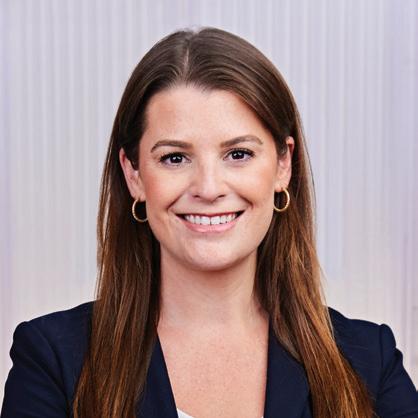
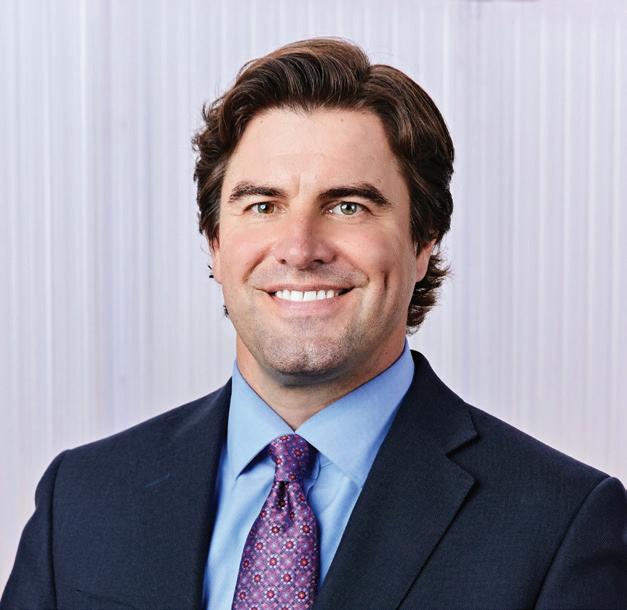


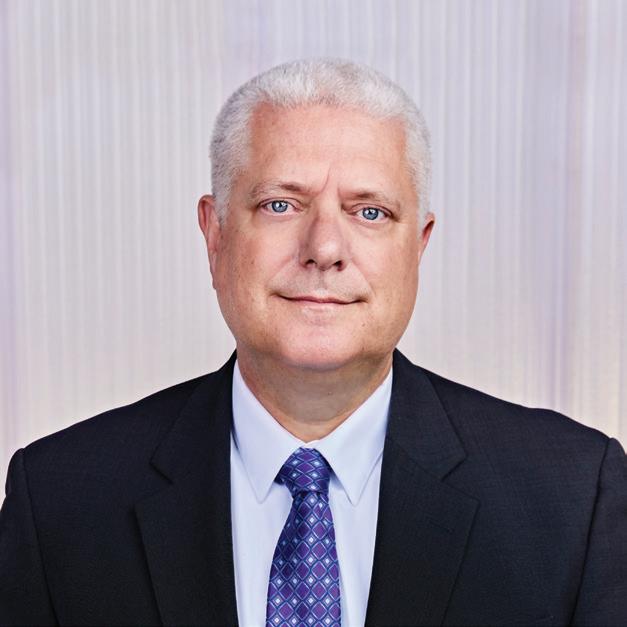

COFER
Mark Pryor
Rick Cofer
Jaynie Badgett
Liz Duggan
Ramey Ko
AUSTIN H CENTRAL TEXAS H HILL COUNTRY PRINCIPAL OFFICE: 602 W. 11 TH ST., AUSTIN, TX 78701 • 512-200-3801 COFERCONNELLY.COM FAMILY LAW • CRIMINAL LAW • PERSONAL INJURY
Jeffrey Connelly Geoffrey Puryear
Natalia Tsokos
On April 18, 2023, the Austin Bar Association’s Council of Firsts podcast dropped. The premise of the podcast is that, though many people talk about the importance of diversity, we don’t always celebrate it when it appears, nor remember all of the historical moments that came before us.
Every Tuesday, you will get a new podcast episode, with a story from a local legend.
The first episode featured Velva Price, the first African American female president of the Austin Bar and your Travis County District Clerk.

Since then, I have talked to so many impressive people whose stories should be told. Some of these are legends you know of, like Judge Lora Livingston, the first African American female to preside over a Travis County District Court; Judge Orlinda Naranjo, the first Latina to become an
Hear from Local Legends on the Austin Bar’s Podcast, Council of Firsts
elected judge of a countywide seat; and Justice Gisela Triana, the first Latina justice of the Third Court of Appeals. And some may be people that are new to you—and if so, I am happy to introduce them.
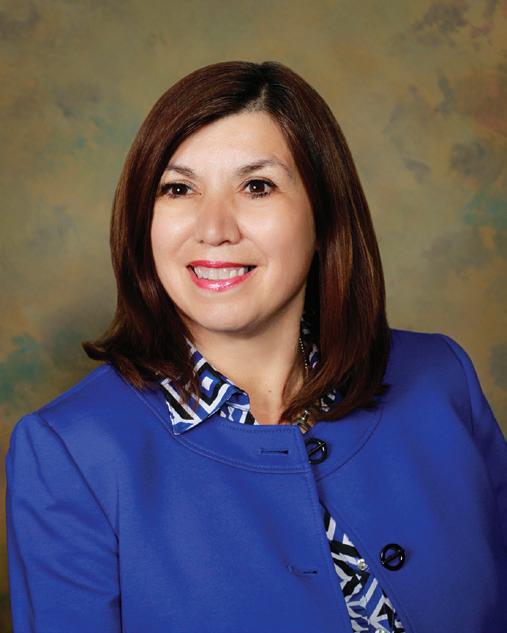
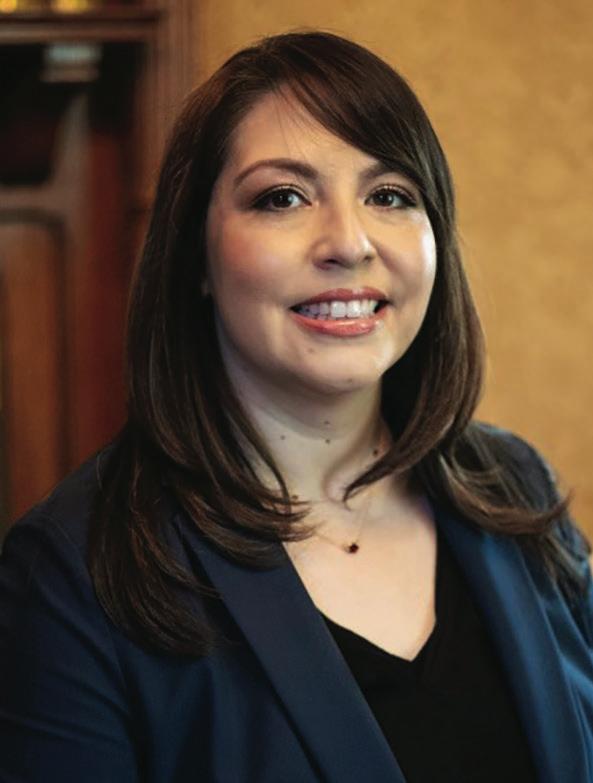
One of these individuals you may not know but definitely should is Richard Pena, the first Hispanic president, and first minority president ever, of the Austin Bar and the State Bar of Texas. There’s also Gary Schumann, founder of the Austin LGBT Bar Association and current chair of the Austin LGBT Chamber of Commerce. Have you met Betty Balli Torres, executive director of the Texas Access to Justice

Foundation, first Latina executive director of TAJF, and first Latina Distinguished Lawyer from the Austin Bar Foundation? If you haven’t yet, you should make it a point to listen to the third episode of Council of Firsts.
You will also hear from leaders of our sister organizations, such as Caroline Hall, president of the Travis County Women Lawyers’ Association, and leaders of emerging organizations, such as Maria Amalia Calef, founder of Cafecitos, an organization for Latina lawyers, as well as many more.
I encourage you to listen to these stories, consider joining the organizations that inspire them,

and maybe even donate your time or your money to them.
I hope you enjoy these episodes as much as I do. If you have ideas for future guests, please email me at amanda@austinbar.org. AL

PRESIDENT’S COLUMN
Chris Andre New Vehicle Leasing / Pre-Owned Sales Domestics / Imports / Exotics Busy Schedule? Call me. Home or Office Viewing and Delivery Any Make. Any Model. Email | chris@appleleasing.com Phone | 512.653.3718
AMANDA ARRIAGA, TEXAS CASA
6 AUSTINLAWYER | JUNE 2023
BELOW (from left): Richard Pena, Velva Price, Betty Balli Torres.
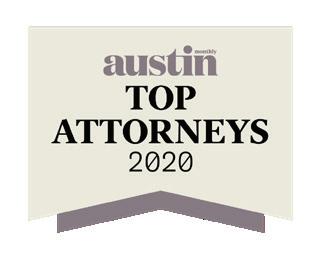



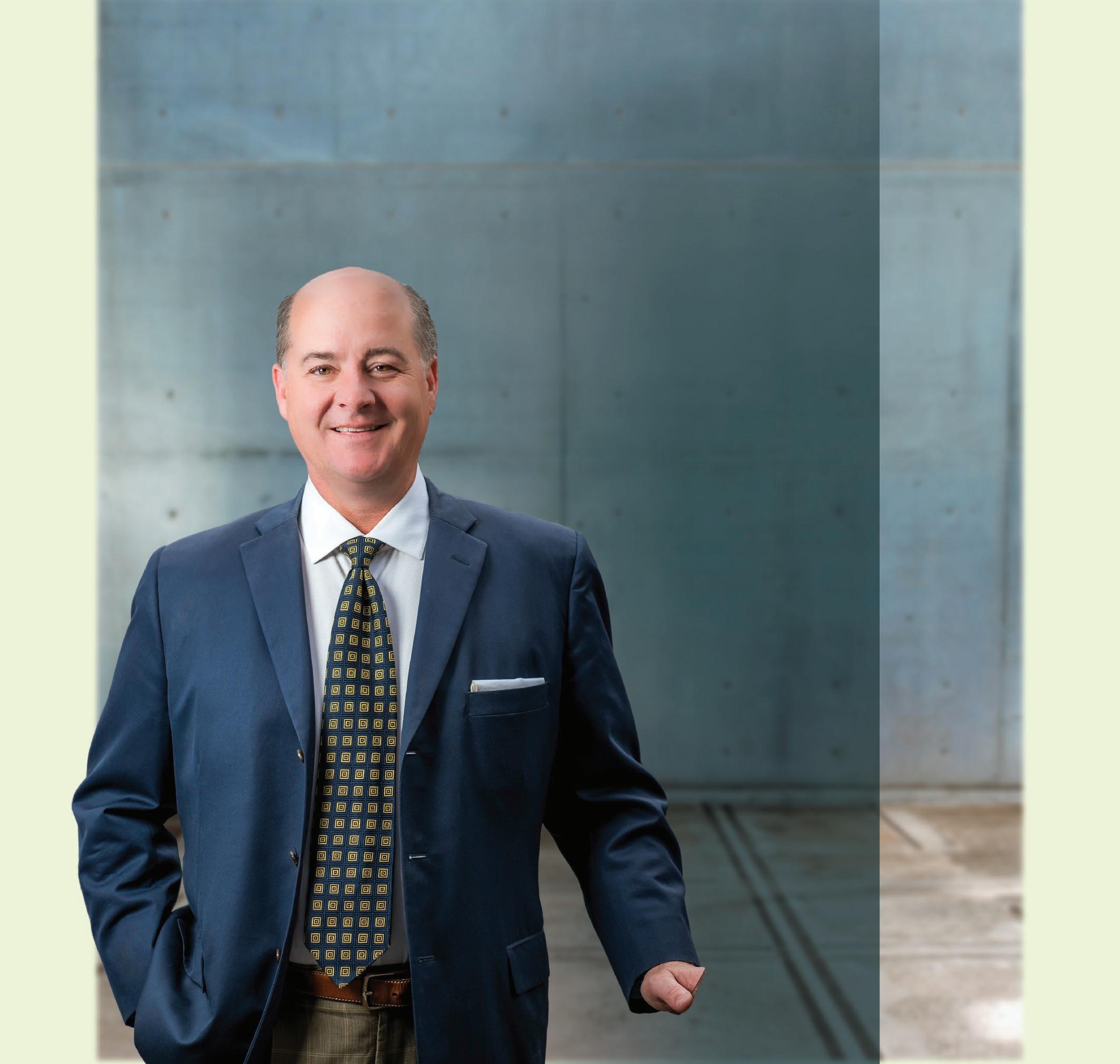



1101 S. Capital of Texas Hwy Building G, Suite 200 Austin, TX 78746 512.477 5796 | BCLAWTX COM Family Law | Real Estate | Construction Law | Commercial Litigation
The Bollier Ciccone team provides premium and personalized services to discerning clients seeking award-winning family and civil law a�orneys. T E XA S S UP E R LAWY E RS ® B U SI NESS L ITI G ATI O N 2 0 1 6–P R E S EN T THE BE S T LAWY ER S IN AMERI CA® C O MM E R CIA L L ITIG ATI O N 2 0 1 2 –P R E S EN T THE BE S T LAWY ER S I N AMERI CA® R E A L ES TATE LAW 2 0 1 2 –P R E S EN T AUSTIN MONTHLY TOP ATTORNEY 2 0 1 9 –P R E S EN T Armbrust & Brown, PLLC 100 CO N G R ESS AV E., SUI T E 1 3 0 0 • AU S T IN, T EX AS 78 70 1 5 12 -4 3 5-2 3 0 0 FA X 512 -4 3 5-2 3 6 0 M H AWKI N S @A BAU S TI N CO M MARK L . H AW K I N S MEDIATION & ADR SERVICES LAKESIDE MEDIATION CENTER When experience matters. Celebrating its 23rd year, Lakeside is proud to welcome Jeff Jury and Tracy Allen, both past presidents of the International Academy of Mediators with decades of experience mediating and arbitrating cases. Collectively, Lakeside mediators have presided over 15,000 mediations and hundreds of arbitrations. Schedule a mediation online today! 3825 Lake Austin Blvd., Suite 403 Austin, TX 78703 | www.lakesidemediation.com adr@lakesidemediation.com | (512)477-9300 JUNE 2023 | AUSTINLAWYER 7
Susannah A. Stinson | Leslie J. Bollier | Tony Ciccone
You Are Not Alone Help Break the Silence and Stigma Around Mental Health Issues in
 BY BRIAN TAGTMEIER, SHEEHY WARE PAPPAS & GRUBBS, P.C.
BY BRIAN TAGTMEIER, SHEEHY WARE PAPPAS & GRUBBS, P.C.
the Legal Profession
yell at them to just get over themselves. We don’t tell someone with diabetes to just produce more insulin because it’s just that simple. We don’t scream at someone with congestive heart failure to pull her act together.
Brian Tagtmeier has a thriving mediation and arbitration practice, having mediated over 1,900 claims and arbitrated over 250 claims, including matters regarding commercial and residential construction, insurance coverage and bad faith litigation, securities litigation, professional liability (med mal and attorney malpractice), employment litigation, personal injury, maritime PI, and partnership/shareholder disputes.When practicing law, Tagtmeier specializes in construction litigation. He has also handled commercial litigation, insurance coverage and litigation, personal injury, partnership/shareholder disputes, and employment law matters. In his 30 years of practicing law, he has gained substantial experience and has tried or arbitrated cases in all these areas.
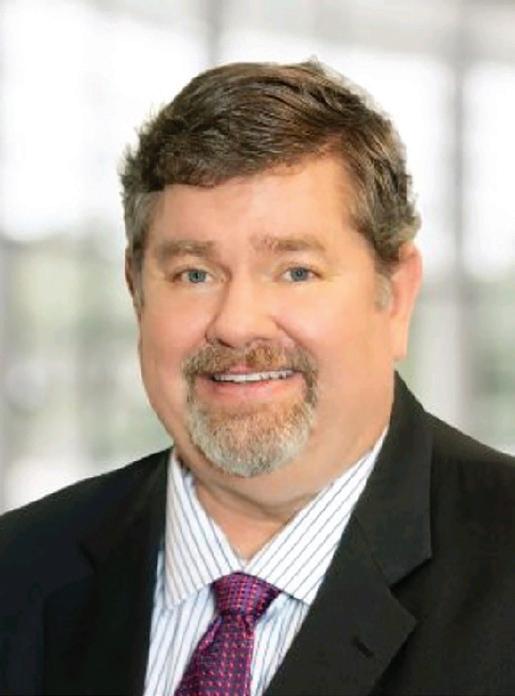
One thing I do to give back to the legal community is speak about mental health issues in the legal profession and law schools. Why I do it is a simple reason: We need to talk about these issues, as they are affecting too many of our family members, friends, and colleagues. These illnesses are silent killers, not just of people but relationships, families, and more. Coming in just after cancer and heart disease, suicide is the third-leading cause of death among attorneys.
We don’t stand in front of someone who has cancer and
If mental illness were a priority, we would have races to raise money and awareness. If it mattered more, we would have ribbons and holiday telethons. If it were hip, we would have ice-bath challenges sweeping the internet. But it is not. It brings stigma and shame. Folks who suffer do not come out of the darkness, as they have been told to hide it, to be strong, man up, just do it.
The only way to face it is to hear, “Me too,” “I’ve been there,” “I hear you.” The dark hates the light, hates the understanding, hates the support. It cannot survive in that place.
I have been there. My kids have a dad because I reached out and got help. I moved from the darkness into the light. I chose not to look for the light at the end of the tunnel. I chose to be that light for myself and others to lead folks out of the darkness.
Where can you get help? More places than you know. Everyone reading this column has heard of the Texas Lawyers’ Assistance Program (TLAP). They have a great online and in-person presence to help people facing these challenges. TLAP provides confidential assistance. They do not share information with the State Bar, the Office of Chief Disciplinary Counsel, or any other disciplinary entity or agency. They can also provide you with people to talk to who have had these issues. There is an 800 number answered 24/7 that can connect you with others who have been where you are: 1-800-343-TLAP (8527).
Another useful source is Lawyers Concerned for Lawyers (LCL). LCL provides a free, con-
fidential lawyer assistance program. They have local branches in many major cities for in-person support and provide a wealth of online information. There is also the Lawyers Depression Project. It is an online peer support group project for attorneys, law students, paralegals, and administrators. The project was started by several attorneys who struggled with depression and other mental health issues. Members can attend bi-monthly peer support group meetings and access a confidential forum for discussions about mental health.
Local bar associations also provide information to attorneys regarding counseling and treatment for mental health issues. I am a member of the Austin Bar’s Lawyer Well-Being Committee. The committee has resources to educate, support, and connect the legal community to achieve a better way of living for our profession. Houston and Dallas have similar groups. If finances are an obstacle to therapy, the Justice Mack Kidd
Fund provides financial assistance for counseling and medical treatment on a short-term basis for Austin attorneys and UT law students suffering from depression or related illness.
So, what can you do for yourself or to help others? If you need help, get help. If you know someone who needs help, talk to them. If they won’t talk to you, keep talking. Your friend or colleague will eventually listen and hopefully get help. But don’t quit on them. They need you more than ever. Tell your friend or colleague about the resources available to them. They may not know where to go.
Depression and mental illness thrive on silence. End the silence. Please. We all need to keep the ones we care about alive and help them with their suffering.
If I leave you with just one thought, let it be this one: You are not alone. Ever. You are not alone. AL
BE WELL
8 AUSTINLAWYER | JUNE 2023




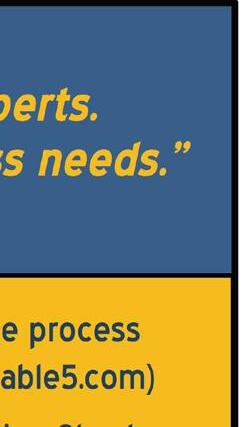
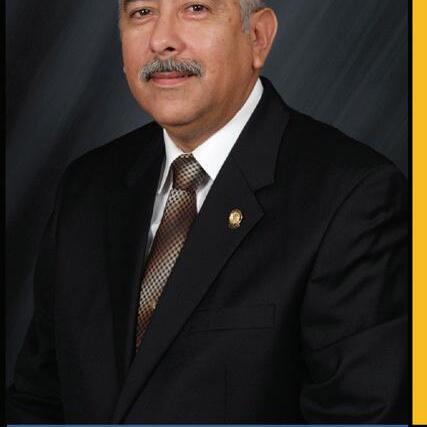
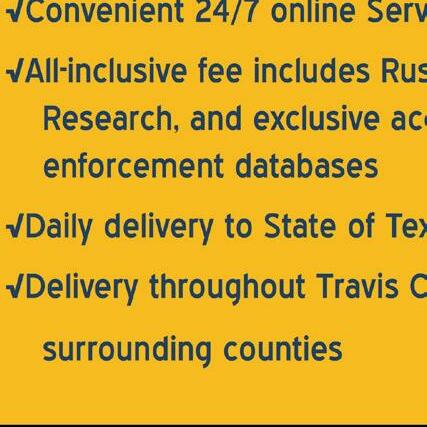


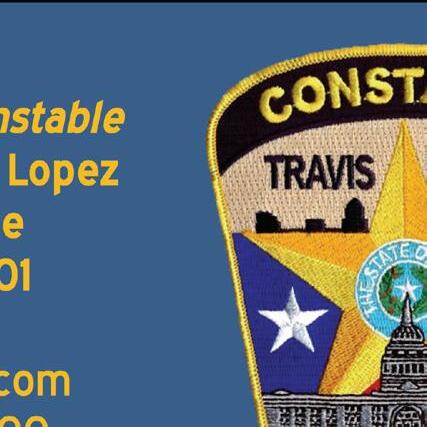





Representing Attorneys Gaines West State Bar of Texas Grievance Oversight Committee Appointed by the Texas Supreme Court Chair, 2006-2010 Member, 2004-2010 Texas Board of Disciplinary Appeals Appointed by the Texas Supreme Court Chairman, 2001-2003 Vice Chairman, 1994-1996, 1998-2000 Member, 1992-1996, 1997-2003 State Bar of Texas Disciplinary Rules of Professional Conduct Committee Member, 1993-1996 Disciplinary Review Committee Member, 1991-1992 Texas Bar Foundation, Fellow State Bar of Texas, Member Brazos County Bar Association, Member Austin Bar Association, Member State-wide Practice westwebblaw.com Principal O ce – 979.694.7000 1515 Emerald Plaza • College Station, TX 77845 Austin – By Appointment – 512.501.3617 1012 Rio Grande St. • Austin, TX 78701 Paralegal Certificate Programs Invest in your staff with online paralegal training from UT Austin. Instructor-led option | Tue. & Thu. | 6-9 p.m. | Starts June 6 Self-paced option | Available to start anytime Attend a free information session or watch on-demand now. professionaled.utexas.edu/paralegal JUNE 2023 | AUSTINLAWYER 9
BRIEFS
NEW MEMBERS
The Austin Bar welcomes the following new members:
Charles Burton
Sarah Byrom
Jacquelynn Chuter
Natalie Corvington
Chloe Daniels
Jacquelyn Davis
Laura de Mander
Thomas Dobbs
Daniel Egan
Jeffrey Flanagan
Jordan Foster
William Garfield, II
Contessa Gay
Stephanie Gharahanian
Maribell Gomez
Vivek Grover
Kathryn Hall
Jennifer Jamison Walker
Kimberly Johnson
Ahrum Kim
Daniel Labruyere
Jamie Liu
Wen Liu
Linda Martinez
Monica Mendoza
Habon Mohamed
Cyrus Morgan
Briana Nicholson
Michael Parsons
Taylor Pearson
Michael Peters
Hayden Prosise
Emily Redden
Amanda Reid
Jason Rew-Hunter
Eran Sharon
Matthew Shawhan
Bernard (Ben) Shub
Joshua Smalley

Destinee Williams
Sam Woodburn-Henry
Brittany Wright
ON THE MOVE
Katie Carmona has joined Jackson Walker LLP’s Trial & Litigation practice in Austin as senior counsel. Carmona previously worked for 20 years as a law clerk to former U.S. District Judge Lee Yeakel of the Western District of Texas. Carmona has also previously clerked in the U.S. District Court of Appeals for the Fifth District and the U.S. District Court for the Eastern District of Texas. She is a Master in the Yeakel Intellectual Property American Inn of Court and received her J.D. from The University of Texas School of Law.
Former U.S. District Judge Lee Yeakel of the Western District of Texas has joined King & Spalding LLP as senior counsel in the firm’s Trials and Global Disputes practice group in the firm’s Austin office. Yeakel announced his retirement from the bench in March 2023, which the Austin Bar celebrated at The UT Club on May 16. Yeakel was appointed to the federal bench in 2003. Yeakel is excited to reenter private practice and is looking forward to engaging in all facets of the dispute process, from counseling clients on dispute avoidance to actively representing them in court.

KUDOS
Congratulations to Travis County Criminal Court at Law No. 7 Judge
Elisabeth Earle! Earle has been appointed as a trustee on the State Bar of Texas Foundation’s board of directors. She will serve a three-year term on the board, beginning in the 2023-24 bar year. Earle has served on the criminal court at law since 2003. She is a former president of the Austin Bar Association (201415). She received her J.D. from St. Mary’s University School of Law in 1994.
MOVING ON UP
Carlos Garcia has been promoted to associate attorney at Goranson Bain Ausley. Garcia joined GBA in 2021 as a law clerk and has previously served as a judicial intern to Hon. Dennise Garcia of the 303rd Judicial District. Garcia is fluent in English and Spanish and is a 2022 graduate from the Texas Tech University School of Law. He is passionate about family law and is especially interested in resolving children’s issues, such as custody, coparenting, and possession schedules.

NEW AUSTIN BAR BOARD MEMBERS
Congratulations to Matt Garcia of Barnett & Garcia for his election to the Austin Bar Association board of directors! Garcia has practiced in Austin for more than 20 years in creditor’s rights. He is a firm believer in promoting healthy work-
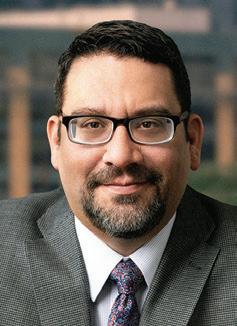
life balance. His two-year term as a director will start July 1, 2023.
Congratulations to Rachael Jones for her election to the Austin Bar Association board of directors! Jones is a former AYLA president (2021-22) and is the editor-in-chief of Austin Lawyer. She maintains a solo law practice focused on civil appeals, research and writing, complex motions, contracts, and small business law. Her two-year term as a director will start July 1, 2023.

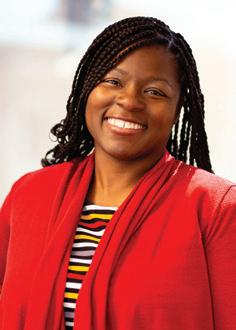
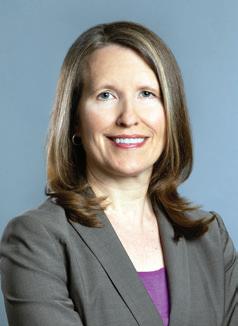
Congratulations to Shelby O’Brien for her election to the Austin Bar Association board of directors! O’Brien is a partner at Enoch Kever PLLC, where she specializes in litigation at the trial and appellate levels. She previously worked as a staff attorney at the Supreme Court of Texas and at the Texas Legislative Council. Her twoyear term as a director will start July 1, 2023.
Congratulations to Ciara Parks for her election to the Austin Bar Association board of directors! Parks is the general counsel for the Texas Board of Law Examiners. She was previously an assistant district attorney with the Travis County District Attorney’s Office and the Montgomery County Prosecutor’s Office in Dayton, Ohio. Her two-year term as a director will start July 1, 2023.
NEW AYLA OFFICER
Congratulations to Gracie Wood Shepherd, who was elected as secretary of the Austin Young Lawyers Association’s board of directors! Shepherd practices family law at Friday Milner Lambert Turner, PLLC. She is a graduate of Texas A&M University and Baylor Law School.


 LEFT (from left): Carmona, Earle, C. Garcia, M. Garcia, Jones, O’Brien, Parks, Wood Shepherd, Yeakel.
LEFT (from left): Carmona, Earle, C. Garcia, M. Garcia, Jones, O’Brien, Parks, Wood Shepherd, Yeakel.
10 AUSTINLAWYER | JUNE 2023

Connecting Legal Writing
Research and Recommendations for Transitions
BY WAYNE SCHIESS, TEXAS LAW, LEGALWRITING.NET

In a recent article, Professor Diana J. Simon of the University of Arizona James E. Rogers College of Law gathered results from some empirical studies on the use of “connectives” (what I’d call “transitions”) in writing. Simon’s article is called “The Power of Connectivity,”1 and the advice is informative and valuable to legal writers who want to write readable, easily comprehensible prose.
Research by psycholinguists and cognitive psychologists shows that transitions in writing improve reader comprehension and even speed up reading and understanding.2 Some of the research is basic and aligns with common sense: In one study, connecting two related sentences with the word “because” resulted in faster comprehension than the same two sentences without the connecting “because.”3
In another study, participants were given equal time to read multiple pairs of sentences. But one group read pairs connected with “because,” while another group read pairs connected with “and,” and the third group read pairs with no connectives. When asked to write down what they remembered, recall was better for those who read the “because” pairs than for the other two groups.4
And one study asked participants to read four technical essays and then take a 10-question quiz about the content. Half the essays contained “logical connectives,” and half did not. The test scores were higher for those who read the connected essays, leading the researchers to conclude that “logical connectives appear to aid readers in understanding expository prose.”5
Simon then describes transitions (connectives) as mainly linking or substantive. Understanding these two kinds of transitions can help us write connected prose.
Linking transitions are the
most common type and are wellknown to legal writers. They connect one idea or concept to another and show relationships. Here are some relationships with examples of linking transitions: addition (further, also); causation (therefore, thus); comparison (similarly, likewise); contrast (however, but); and sequence (first, second, third). Granted that these transitions are basic, nearly all legal writing could be improved by more and better use of linking transitions.
Substantive transitions show substantive links between ideas. Simon focuses on three subcategories: repetition, restatement, and roadmapping.6
Repetition means literally repeating a key word or phrase from a previous sentence or paragraph and, when not overdone, creates connections in the reader’s mind. For example, when writing about a claim of premises liability, it would be unwise to refer to the claim, in the beginning, as “premises liability,” then, in the middle, as “premises defect,” and, later, as “owner liability.” That’s confusing. By repeating the key term, “premises liability,” the writing stays connected, easing the reader’s way.
Simon notes that even the way we use cases employs repetition:
When the defendant is a governmental entity, a statutory prerequisite may be jurisdictional. Key v. ABC Co., 123 S.W.3d 456, 457 (Tex. 2000). In Key, the court used a three-step test to determine what is a jurisdictional prerequisite. Id.
The repeated case name, Key, creates the connection.
Restatement means recasting a concept for efficiency and reference:
The state argues that a statutory prerequisite is jurisdictional when-
ever the defendant is a governmental entity. This broad argument circumvents the court’s three-step test for determining what is a jurisdictional prerequisite.
Here, “broad argument” restates, in abbreviated form, the longer phrasing of the argument, creating a connection between the two sentences.
Finally, Simon discusses roadmapping, which introduces a coming idea or ideas or can “alert the reader to a shift in thought ….”7
For example:
• The applicant’s request is supported by three key facts. First, …
• Two valuable public policies underlie the statutory language. These policies are…
• [From earlier in this column:] Simon focuses on three subcategories:
repetition, restatement, and roadmapping.
The techniques discussed here can help all legal writers increase and improve their use of transitions in legal writing. After all, science backs it up. AL
FOOTNOTES
1 Diana J. Simon, The Power of Connectivity: The Science and Art of Transitions, 18 Leg. Comm. & Rhetoric: JALWD 65 (2021).
2 Id. at 66 n. 2, 3 and sources cited there.
3 Id. (citations omitted).
4 Id. at 67-68 (citations omitted).
5 Id. at 78 (citations omitted).
6 Id. at 74-75.
7 Id. at 76.
OPENING STATEMENT
12 AUSTINLAWYER | JUNE 2023
These techniques can help all legal writers increase and improve their use of transitions in legal writing. After all, science backs it up.
partners:

associate attorneys:


Arielle Rosvall, Coleen Kinsler

JUNE 2023 | AUSTINLAWYER 13
AYLA PRESIDENT’S COLUMN
BLAIR LEAKE , WRIGHT & GREENHILL, P.C.
Lessons Learned from the AYLA Front
Over the past year, my AYLA President’s Columns have ranged from political to aspirational— with a heavy helping of endorsements of AYLA events and programs. My term as president is now coming to a close. At the risk of writing a meandering memoir as my final column, I have done more or less exactly that. Mea culpa.
Herein lie lessons learned as an officer of the best law-related group in the State of Texas these past six years. None of the content herein has been empirically verified. It is, instead, merely the product of my own flawed observations and resulting opinions. Abandon all hope, ye who enter here.
It is a quirky irony that by the time you become president of a major city’s young lawyers association, you are not particularly young anymore. I have now been an attorney for a decade. My portrait hanging in Hilgers House adheres to the time-honored lawyer tradition of using a headshot of a far younger self than is appropriate. I now have grey in my beard, two children, and legal mentees of my own. I was also recently reminded that I am close to aging out of the Texas Young Lawyers Association. (Thanks, Jenna.) Institutional knowledge matters, though, and that kind of knowledge requires the kind of gradual osmosis that only time and experience can provide. There is wisdom in how the system works. I learned and relearned many lessons from my time with AYLA,
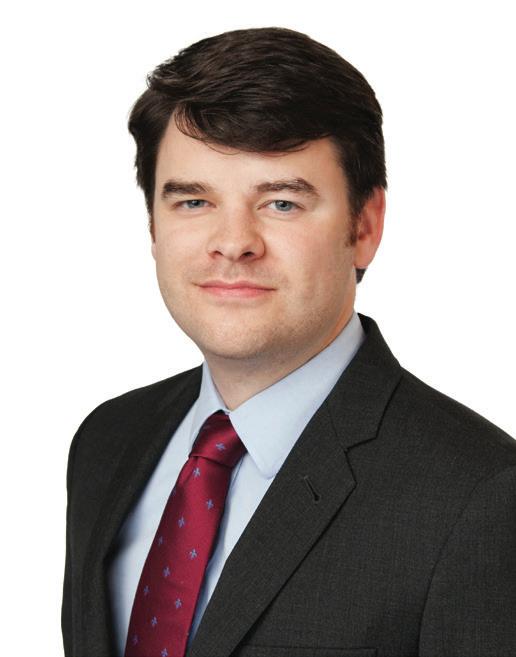
sometimes the hard way and sometimes not. I dare hope someone might cherry-pick one herein to dust off and put to good use. Boards, committees, and other groups require a critical mass of engaged members to produce a stellar—or even just adequate— product. Engagement is usually contagious, but it is nowhere near as contagious as shirking. If you find yourself as a leader, do it from the front if you want more of the former than the latter. Few will follow your lead if it comes more often as dictates rather than by example. Thankfully, my time as AYLA president has been spent surrounded by a slew of dedicated and wonderful people, and thus the contagion of engagement this past year has been mutual.
Preparation matters. Running a meeting will be far more productive if you first take the time to read and understand the agenda—not to mention preparing one in the first place. Impromptu speeches are fun and impressive when someone can pull them off, but they usually would have been better with some time and energy spent beforehand. The same goes for events and programs. The devil lies in the details, and it’s hard to dial in any details for an event when you are figuring out the basics on the fly.
Personal relationships matter.
Board members who are—or who become—friends are more likely to feel compelled to work hard to avoid letting the others down. Disappointing an acquaintance isn’t nearly as painful as disappointing a friend. For the same reason, fundraising for groups such as AYLA usually struggles whenever the soliciting party is a stranger. Seeking contributions from friends or colleagues you know and have worked with—or
against—is far more fertile fundraising ground. In the competition between the door-to-door salesman and the adorable niece selling Girl Scout cookies, the niece will always win.
Taking pride in your work product matters. Debbie Kelly— the heart and soul of AYLA who deserves more credit than the entire board combined for any given bar year—often comments on the fact that the AYLA board of directors is made up of volunteers. No board member gets paid for their time and trouble, and it is easy to set aside AYLA duties for work and home. Duties at work and home are certainly more important. People remember and people talk, though. Developing a reputation as a competent—or incompetent—individual can follow you for a long time. Transcending just what others think, pride is personal. No one (I hope) walks away feeling good about themselves from a program or event they ran poorly. In contrast, running a successful charity or social event provides a usually much-needed personal “win” that can carry you for some time. Stacking up multiple wins compounds over time in terms of the respect you gain from others and from yourself.
Adaptability and resilience are key for retaining sanity. You might not obtain the grant funding you expected, you might not get the event turnout you hoped for, and on any given task you might not live up to your own standards. The way things have worked for you and your organization in the past might not work again. There is always tomorrow to try again or try something new. Failures are just part of the process. Lastly, being involved in your local legal community matters. I probably could have billed more hours at work these past six years and gotten more sleep, but the benefits I have gained by being involved far outweigh the costs of admission. I have gained friends, contacts, mentorship, community engagement, personal and professional development, public speaking opportunities, and personal pride and respect. I am very happy I chose to get involved, and very lucky to have done so alongside so many great people. I would encourage everyone to find their own niche and do the same. You might just learn something along the way. AL
UPCOMING EVENTS
AUSTIN YOUNG
FRIDAY, JUNE 30 AYLA Trial Institute: The Rosenberg Spy Case 9:00 a.m. – 5:00 p.m. Third Court of Appeals 209 W. 14th St. Room 101 www.AustinBar.org to register SATURDAY, JUNE 24 Leadership Academy Casino Night 7:00 p.m. – 10:00 p.m. Chateau Bellevue 708 San Antonio St. Proceeds to benefit Youth Justice Alliance (YJA) 14 AUSTINLAWYER | JUNE 2023
LAWYERS ASSOCIATION
AYLA Member Spotlight: Meet Zachary Daniel
AYLA: Tell us a little bit about yourself and your law practice.
DANIEL: I’m Zachary Daniel! I was born in Brooklyn, N.Y., but grew up outside of Houston and have mostly stayed in the state most of my life (except for a fouryear stint at Notre Dame)! I’ve

been practicing law for about two and a half years now and work for a small civil litigation firm called Bathaee Dunne LLP. I also do some entertainment-focused work in my free time as a passion. Civil litigation was not my first choice, but I have welcomed the challenge and utilize every single day

as an opportunity to provide value to clients, get better, and grow as an attorney!
AYLA: How long have you been involved in AYLA and what’s been your best AYLA experience so far?
DANIEL: This past year has actually been my first year in AYLA, and it has been a wonderful opportunity to work with so many capable and kind people. I have had a couple of great experiences, but the best has to be our recent Crawfish Boil! I love crawfish season, so getting the opportunity to hang out with fun attorneys in our community (and their families) while having fantastic crawfish was an amazing time.
AYLA: What was your childhood dream job?
DANIEL: My childhood dream job was to be an athlete, musician, or entertainment agent! I always had a spirit to entertain growing up! To this day, I enjoy putting on fun events where I get to see the
smiling faces of people having a great time.
AYLA: What are some of the things you enjoy most about living in Austin?
DANIEL: I have lived in Austin for about eight years now, so one of the things I’ve enjoyed most is the community I’ve built during that time. There are fantastic people all around the city willing to help you along your journey if you’re willing to reach out!
AYLA: What’s your best piece of advice to fellow young attorneys?
DANIEL: Never be afraid to ask questions. Be curious, not judgmental! AL
AUSTIN YOUNG LAWYERS ASSOCIATION JUNE 2023 | AUSTINLAWYER 15
Patrick Keel Former District Judge Mediator Arbitrator patrickkeel.com Available by video and in person.
Zachary Daniel is a new member of the Austin Young Lawyers Association. He practices civil litigation at Bathaee Dunne LLP and is a graduate of the University of Notre Dame and The University of Texas School of Law. Daniel was also elected treasurer of the Austin Black Lawyers Association (ABLA) for the 2023-24 bar year.
Civil litigation was not my first choice, but I have welcomed the challenge and utilize every single day as an opportunity to provide value to clients, get better, and grow as an attorney!
PRESERVATION: On remand from Supreme Court, Fifth Circuit allows appellant to raise new purely legal argument applying proper of level of scrutiny to speech restriction.
Reagan Nat’l Advert. of Austin, Inc. v. City of Austin, 64 F.4th 287 (5th Cir. 2023).
The City of Austin’s sign ordinance prohibits new off-premises signs and prohibits upgrades to existing off-premises signs.

No such restrictions apply to on-premises signs.
Reagan challenged this disparate treatment of off-premises signs as violating the First Amendment. In the district court, Reagan argued that the ordinance is a content-based restriction subject to and failing to satisfy strict scrutiny.
Austin argued that the disparate treatment is content-neutral and subject only to intermediate scrutiny, which it satisfies.
Reagan did not argue in the alternative that the ordinance fails intermediate scrutiny.
The district court agreed with Austin, the Fifth Circuit agreed with Reagan, and then the Supreme Court agreed with Austin.
On remand to the Fifth Circuit from the Supreme Court, Reagan argued for the first time that the ordinance failed intermediate scrutiny. Austin argued that Reagan had waived this argument.
The Fifth Circuit allowed the new argument.
The court first set forth the general rule that an appellant abandons all issues not raised and argued in its initial brief on appeal. In exceptional circumstances, however, that rule gives way. After all, the court explained, the refusal to consider arguments not raised is a sound prudential practice, rather than a statutory or constitutional mandate, and there are times when prudence dictates the contrary.
The court found that remand from the Supreme Court is an exceptional circumstance. It did not matter that the Supreme Court
did not change the law—its clarification of prior precedent was enough.
The court also independently concluded that it may consider the waived argument because it presents a pure legal question and considering the argument will not prejudice Austin, as Austin has argued throughout the case that the ordinance satisfies intermediate scrutiny.
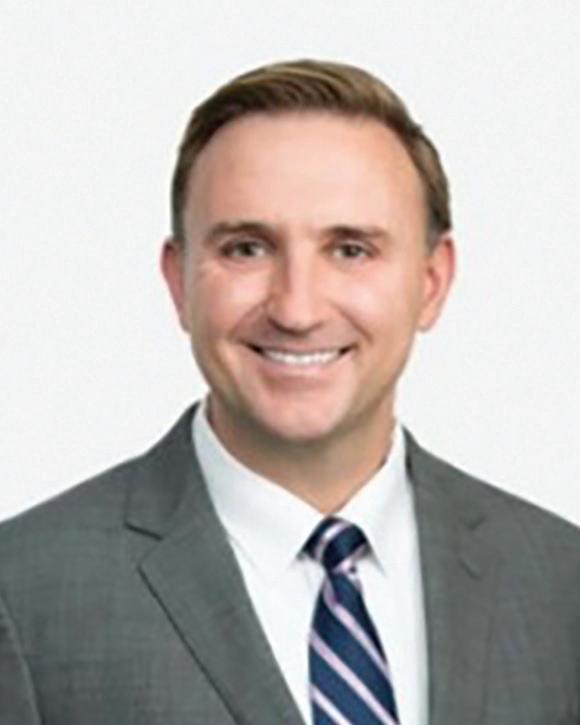
On the merits, the court upheld the ordinance.
FEDERAL PREEMPTION: Food, Drug, and Cosmetic Act (FDCA) does not preempt Texas common-law tort claims arising from mislabeled cupcake.
Spano v. Whole Foods, Inc., 65 F.4th 260 (5th Cir. 2023).
The Spanos’s child, C.S., is allergic to dairy, tree nuts, and fish. C.S. experienced a severe allergic reaction after consuming a cupcake allegedly mislabeled as “vegan” by a Whole Foods store.
The Spanos sued Whole Foods under theories of negligence and strict liability, partly relying on federal labeling requirements to establish Whole Foods’s negligence.
The district court granted Whole Foods’s motion to dismiss, holding that the Spanos’s suit was impliedly preempted by the FDCA.
The Fifth Circuit reversed.
The court first held that implied conflict preemption under the FDCA was an available defense to the Spanos’s claim. The court rejected the Spanos’s
contrary argument, which relied on construction notes accompanying the FDCA that purport to limit preemption to the terms of the act’s express-preemption provision. The court held that those notes preclude only field preemption, not implied conflict preemption.
Applying Supreme Court precedent blessing state-law claims that merely “parallel”—but do not add to—FDCA requirements, the court found that the Spanos’s claims as pleaded were not preempted.
The court explained that each of the Spanos’s claims is properly a recognized state tort claim rather than a freestanding federal cause of action based on a violation of the FDCA’s provisions or FDA regulations. Further, while each of the causes of action references violations of FDA regulations, those violations are properly used only as evidence to show breach of the stated duty.
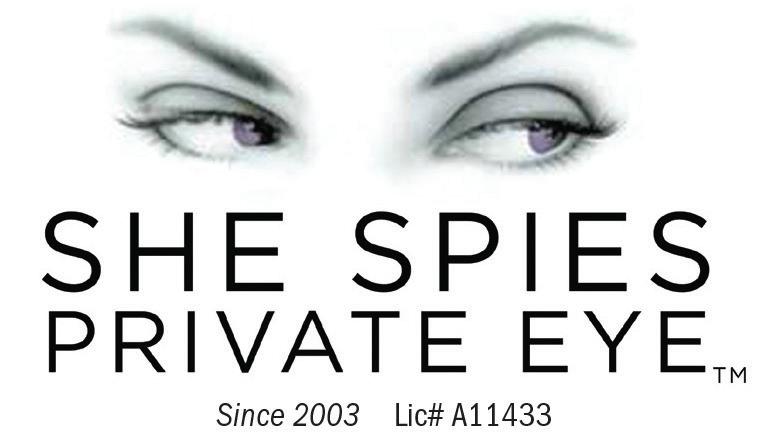
The court left open the possibility that the Spanos’s claims could come into conflict with the FDCA as the case develops. As pleaded, however, the claims survive a motion to dismiss. AL
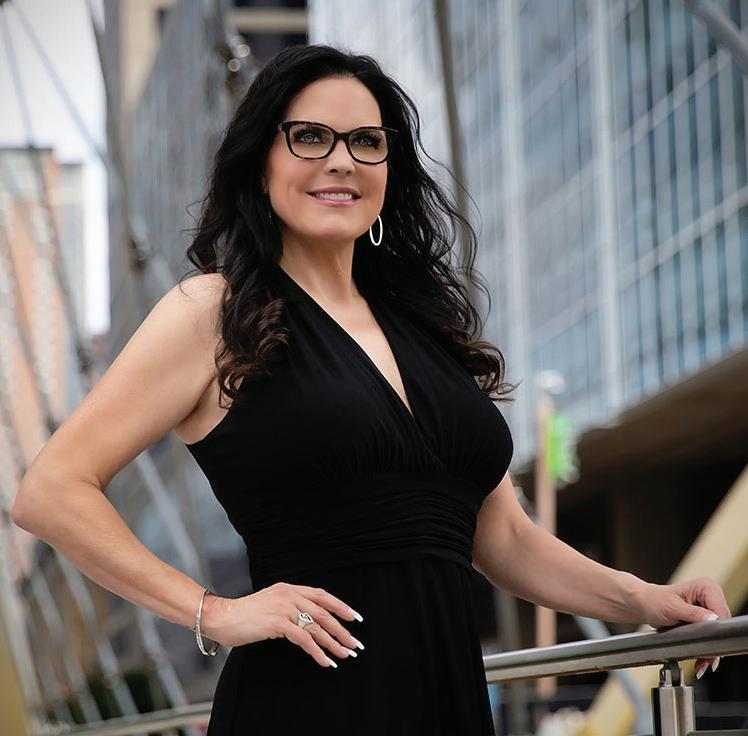
16 AUSTINLAWYER | JUNE 2023
The following are summaries of opinions issued by the Fifth Circuit in April 2023. The summaries are overviews of particular aspects of the opinions; please review the entire opinions.
>
“Information
Divorce and Child Custody Surveillance ~ Undercover Background Checks Computer & Phone Forensics Corporate Investigations Expert Testimony and more Offices in Austin, Round Rock and Dallas STRICTLY CONFIDENTIAL
in Forbes Magazine
Jason LaFond is an Austin-based appellate litigator with significant experience before the Fifth Circuit. He is senior counsel at Yetter Coleman LLP.
FEDERAL CIVIL COURT UPDATE
is power, the not knowing is devastating.”
Featured
Anji Maddox
The following are summaries of selected civil opinions issued by the Third Court of Appeals during April 2023. The summaries are an overview; please review the entire opinions. Subsequent histories are current as of May 8, 2023.
THIRD COURT OF APPEALS CIVIL UPDATE
she was not a registered tribe member. M.Y.’s grandmother was a Cherokee tribe member. Neither tribe was notified as required by the Indian Child Welfare Act (ICWA) to allow a tribe representative to participate in the termination proceeding with a known or suspected Indian child.
The trial court terminated M.Y. and D.Y.’s parental rights. The court of appeals observed that the ICWA raises the standard of proof to beyond a reasonable doubt.
Because no tribe was notified and because the trial court used an erroneous standard of proof, the trial court erred in granting termination. The court reversed and remanded.
FAMILY LAW: Court affirms severance of attorney fee claim in divorce case.

Musick v. Zamora, No. 03-2100555-CV (Tex. App.—Austin Apr. 27, 2023, no pet. h.) (mem. op.).
Musick intervened in Zamora’s divorce, alleging an interest in the lawsuit for nonpayment of attorney fees. The trial court severed Musick’s claim and signed the final divorce decree.
>PARENTAL TERMINATION:
Court reverses termination for failure to comply with ICWA.
M.Y. v. Tex. Dep’t of Fam. & Prot. Servs, No. 03-22-00720-CV (Tex. App.—Austin Apr. 23, 2023, no pet. h.).
M.Y. had Indian heritage as Cherokee and Blackfoot, although
Musick appealed the severance order. Musick contended that the only procedural vehicle to challenge an intervention is a motion to strike, not a severance.
The court of appeals noted that a claim is properly severable when:
1) the controversy involves more than one cause of action;
interwoven and involves different facts and issues than the remaining action.
The court of appeals concluded that a trial court was not prohibited from severing an intervenor’s claims. The court affirmed.

CAUSES OF ACTION: Court follows prior opinion that there is no aiding-and-abetting cause of action.
John Roberts Austin I, LP v. Netaji, No. 03-21-00540-CV (Tex. App.—Austin Apr. 20, 2023, no pet. h.) (mem. op.).
Appellants sued Netaji, alleging he had harassed, intimidated, and threatened them, and sued appellees for aiding and abetting Netaji’s conduct.
The trial court dismissed appellants’ claims, based on an Austin Court of Appeals opinion from 2020, Hampton v. Equity Trust Co., which held that a cause of action for aiding and abetting does not exist in Texas.
Appellants contended the panel erred in Hampton and urged the court to adopt Restatement of Torts § 876.
PERMISSIVE APPEAL: Court upholds owners’s challenge to HOA’s failure to comply with voting procedures.
Rockwall Ranch Prop. Owners Assoc. v. Gonzales, No. 03-2200004-CV (Tex. App.—Austin Apr. 6, 2023, no pet. h.) (mem. op.).
Owners sued to challenge Association’s non-compliance with the bylaws’s voting provision. The bylaws provided that votes may be cast in person or by proxy. Association counterclaimed, contending that members may vote absentee or by electronic ballot as provided in Property Code § 209.00592.
The trial court denied Association’s motion for summary judgment and granted a motion for permissive appeal. Association contended that Section 209.00592 superseded the bylaws and permitted absentee or electronic voting.
The court of appeals concluded a dedicatory document may offer multiple voting methods, but it must offer absentee or proxy. The court rejected Association’s interpretation that it was authorized to use each of the statute’s voting methods without regard to those listed in the bylaws. The court affirmed. AL
2) the severed claim could be in a lawsuit if independently asserted; and
The court of appeals observed that it was bound by the prior panel decision unless there is an intervening change by the legislature or a higher court, or the court considers the issue en banc. The court further concluded that, as an intermediate appellate court, it cannot be the first to recognize a new cause of action. The court affirmed.
3) the severed claim is not
JUNE 2023 | AUSTINLAWYER 17
Laurie Ratliff is a former staff attorney for the Third Court of Appeals. She is board-certified in civil appellate law by the Texas Board of Legal Specialization and an owner at Laurie Ratliff LLC.
THIRD COURT OF APPEALS CRIMINAL UPDATE
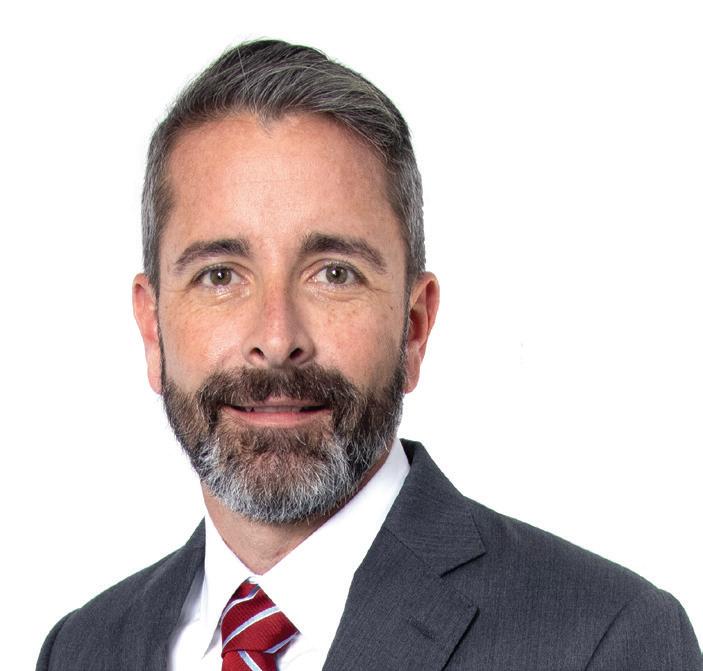
Knight was charged with capital murder for killing the victim while committing or attempting to commit a robbery. The evidence at trial showed that Knight planned to rob the victim after taking steps to earn his trust and gain entry into his apartment. Knight used a gun to fatally shoot the victim, searched through the victim’s home for cash, and stole money and other property from the victim. One of the witnesses at trial was the victim’s friend, who testified that the victim and Knight lived together for approximately two years before the victim’s death, but she had not seen Knight and the victim “hanging out” together near the time of the murder because Knight “had already robbed him once.”
for which there was remarkably little evidence.” Further, Knight urged that “[t]he introduction of the alleged prior robbery greatly harmed [him] because it irretrievably planted in the minds of the jur[y] the notion that [he] was a robber” and that the trial court’s instruction to disregard could not “possibly have cured the [S]tate’s error” because “the bell simply could not be un-rung.”
DEADLY WEAPONS – BASE -
BALL BAT: Evidence was sufficient to prove that baseball bat was used as deadly weapon during commission of offense.
The following are summaries of selected criminal opinions issued by the Third Court of Appeals from December 2022. The summaries are an overview; please review the entire opinions. Subsequent histories are current as of May 1, 2023.
MISTRIAL – IMPROPER ADMISSION OF EXTRANEOUS OFFENSES:
Trial court did not abuse its discretion in denying motion for mistrial after witness testified regarding extraneous offense committed by defendant in murder trial.
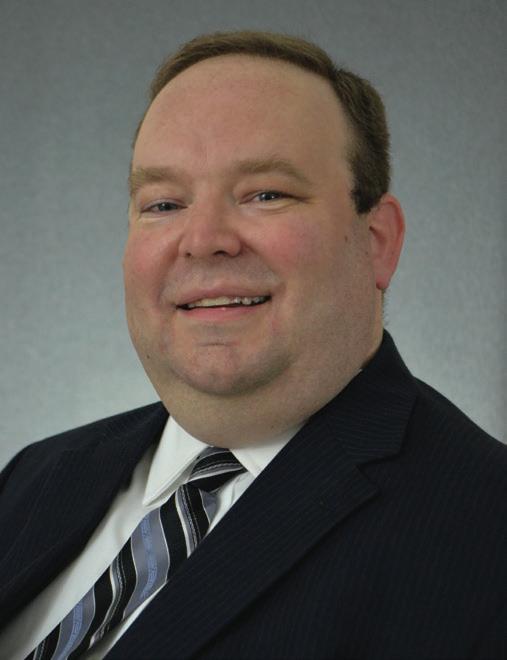
Knight v. State, No. 03-21-00338CR (Tex. App.—Austin Dec. 22, 2022, no pet.) (mem. op., not designated for publication).
The State then asked the friend, “[T]here was a suspicion about that, correct?” The friend replied, “I mean, [the victim] told me that, and then immediately he moved out.” At that point, Knight objected on hearsay grounds and requested that the trial court instruct the jury to disregard the testimony. The trial court agreed to instruct the jury to disregard the witness’s testimony about a prior incident and not to consider it for any purpose. Knight then moved for a mistrial, and the trial court denied that motion. Knight was convicted of capital murder as charged.
On appeal, Knight argued that the trial court erred by denying his motion for mistrial because the State improperly put “before the jury an extraneous alleged robbery which was never proved up … in a case where proof of robbery is an essential element and
The appellate court disagreed, concluding that “any error was cured by the trial court’s instruction to disregard.” The court explained, “The allegedly improper testimony was one brief pair of statements, and the trial court promptly instructed the jury to disregard those statements. Nothing in the record before this court suggests the jury was unable to follow the instruction.” The court added that the statements “were not so emotionally inflammatory or extreme that the rare remedy of a mistrial would be necessary to cure any prejudice.” Moreover, Knight had been charged with a violent murder, “but the statements at issue addressed a robbery and did not provide any details concerning the alleged offense.”

Additionally, although Knight claimed that the instruction to disregard could not have cured any error because there was little evidence to establish that he robbed the victim, “the [S]tate presented a substantial amount of evidence from which the jury could have reasonably determined that Knight killed [the victim] while in the course of robbing him.” The court concluded that the trial court did not abuse its discretion by denying the motion for mistrial.
Huerta v. State, No. 03-21-00041CR (Tex. App.—Austin Dec. 21, 2022, no pet.). Huerta was charged with burglary of a habitation with intent to commit a felony other than theft. The evidence showed that Huerta had broken down the door of his girlfriend’s apartment and was “assaulting her with a baseball bat.”
Huerta was convicted of the charged offense and the trial court made an affirmative deadly weapon finding. On appeal, Huerta argued that the baseball bat was not a deadly weapon.
The appellate court disagreed. It explained that Huerta “broke down [his girlfriend]’s front door and chased her while holding a bat cocked back like someone intending to swing it at something.” Also, “[w]hen she locked herself in the restroom, he attempted to force open that door as well and only fled when he believed police were at the apartment.”
The court concluded that “such evidence supports a reasonable inference that appellant threatened action to hurt [the victim] with the bat in a factually possible manner.” AL
>
Robert L. McRae, Certified Mediator Registered Patent Attorney 8023 Vantage Drive, Ste 1500 San Antonio, Texas 78230 210-886-9500 Email: rmcrae@gunn-lee.com www.gunn-lee.com 18 AUSTINLAWYER | JUNE 2023
Zak Hall is a staff attorney for the Third Court of Appeals. The summary below represents the views of the author alone and does not reflect the views of the court or any of the individual Justices on the court.
The following are summaries of selected opinions issued by the Supreme Court of Texas in April and May 2023. The summaries are an overview of selected aspects of the opinions; please review the entire opinions.
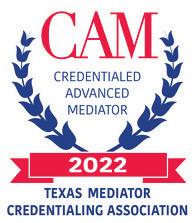

diction and motion for summary judgment, both of which were denied by the trial court. HHSC appealed, and the court of appeals affirmed the denial. HHSC filed a petition for review in the Texas Supreme Court, which was granted.
The Supreme Court found that the former employees’ claims were not covered under the Act, holding that the Act “protects only express reports to an appropriate law enforcement authority that unambiguously identify the employing governmental entity or another public employee as the violator.”

The Court noted that the Act excludes violations by independent contractors; that the report must be an express, “actual” report of violations by the governmental entity, not a report from which the entity’s wrongdoing must be implied; that disagreements with superiors’ discretionary choices regarding enforcement were not reports of violations of law; and that none of the reports identified an act or omission by HHSC that gave rise to a violation of law.
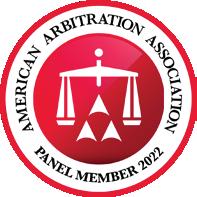
TEXAS
WHISTLEBLOWER
ACT: Employees did not expressly report any legal violations by employer, and thus were not protected under Act.
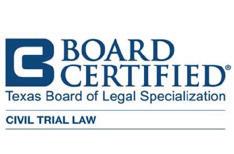
Tex. Health & Human Servs. Comm’n v. Pope, No. 20-0999 (Tex. May 5, 2023).
Two HHSC employees repeatedly raised concerns to HHSC’s Office of the Inspector General (OIG) and other enforcement agencies regarding violations of law by a private contractor, LeFleur Transportation. Specifically, they alleged that LeFleur had failed to comply with federal and state rules regarding the accompaniment of minors to medical appointments, and that LeFleur’s obligations to make “experience rebate” payments for profits above its profit cap were not being enforced. The two employees were subsequently fired.
The former employees sued HHSC under the Texas Whistleblower Act, claiming that their terminations were retaliatory.
HHSC filed a plea to the juris -
Accordingly, the Court found that the trial court erred in denying HHSC’s plea to the jurisdiction and motion for summary judgment. The Court reversed the court of appeals’s judgment and rendered judgment dismissing the suit.
STATUTE OF LIMITATIONS: Limitation period was not tolled during Texas resident’s temporary physical absence from state.

Ferrer v. Almanza, No. 21-0513 (Tex. Apr. 28, 2023).
Ferrer was injured in a car accident; Almanza was the driver of the other vehicle. Ferrer filed suit one year and 11 months after the wreck, incorrectly naming Almanza’s sister and father as defendants. Four months after filing (and three months after the limitations period had expired), Ferrer amended her petition to name Almanza as a defendant.
Almanza was a Texas resident at the time of the wreck, but left the state to attend college the following year. She nevertheless
remained a Texas resident, as evidenced by the facts that she kept her Texas driver’s license and mailing address and returned to Texas during school breaks.
Almanza moved for summary judgment based on limitations. Ferrer argued that Texas Civil Practice & Remedies Code Section 16.063, which tolls limitations during a person’s “absence from this state,” applied during the periods that Almanza was away at college, and therefore her amended pertition was timely.

The trial court granted summary judgment in favor of Almanza, and the court of appeals affirmed.
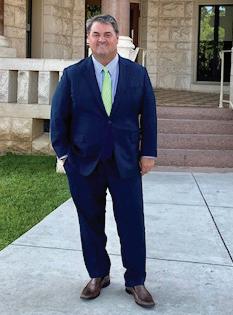
Noting a split amongst the courts of appeals in the state as to whether Section 16.063 applies when a Texas resident is physically absent from Texas but otherwise subject to personal jurisdiction and amenable to service, the Texas Supreme Court granted Ferrer’s petition for review.
Relying on Ashley v. Hawkins, 239 S.W.3d 175, 179 (Tex. 2009), in which the Court held that the limitations period was not tolled
when a defendant permanently left Texas (and thus was no longer considered a Texas resident) but remained subject to personal jurisdiction in Texas and amenable to service under the long-arm statute, the Court determined that Section 16.063 similarly does not apply to toll limitations when the defendant remains a Texas resident and temporarily leaves the state but remains subject to personal jurisdiction in Texas.
The Court found that, despite phyiscally being in another state, Almanza had remained under the personal jurisdiction of Texas courts and amenable to service of process throughout the limitations period, and thus was never “absent from this state” for purposes of Section 16.063.
The Court affirmed. AL
Mediation • Arbitration • Litigation Consulting Special Master/Judge Proceedings JEFF ROSE RoseResolutionGroup.com jeff@roseresolutiongroup.com 512.637.0931 Mediation. Arbitration. Resolution. Senior Judge Former District Judge and Chief Justice - Texas Third Court of Appeals JUNE 2023 | AUSTINLAWYER 19 TEXAS SUPREME COURT UPDATE
Rachael K. Jones is the editor-in-chief of Austin Lawyer. Her primary practice areas include civil appeals, contracts, and complex motion practice.
>
Congratulations to Austin Bar Award Winners!
The Austin Bar Association has recently recognized four outstanding members with prestigious awards.

Professionalism Award: Jane Webre
Jointly presented by the Austin Bar Association and the Texas Center for Legal Ethics and Professionalism, the Professionalism Award is given each year to a lawyer, selected at the local level, who best exemplifies, by conduct and character, truly professional traits and who inspires others to be their best.
The 2023 Professionalism Award winner is Jane Webre with Scott Douglass & McConnico LLP.
Webre practices civil appellate law and handles most of the firm’s appeals. Her practice also includes trial court litigation involving complex matters that present significant legal issues, including oil and gas litigation and landuse regulation. Webre has argued appeals in the Supreme Court of the United States, the Fifth Circuit, the Supreme Court of Texas, and many of the courts of appeals around the state.
Webre is a longtime member of the Austin Bar Association and has been active in the Civil Appellate Section. She has also served as an officer for the Calvert Inn of Court.
Webre is also a frequent speaker at seminars involving appellate procedures and analysis of Texas Supreme Court opinions.
Before joining Scott Douglass & McConnico, Webre was a law clerk for the Hon. Reynaldo G. Garza of the Fifth Circuit.
Webre was nominated for the Professionalism Award by Austin mediator and arbitrator Patrick Keel.
“Jane is a true mentor and a shining example for all lawyers, especially young lawyers,” Keel said. “Her professional skills are legendary, as are her warmth and sense of humor.
In other words, Jane excels
both at being an accomplished lawyer and at being an admirable, likable person, which is ideal in our profession. Jane is among the best-known and most-admired lawyers in the Austin Bar community. The reaction to her receiving this award should be, ‘How appropriate!’”
David H. Walter Community Excellence Award: Velva Price
The David H. Walter Community Excellence Award is presented annually to an Austin Bar member who has recently made a significant impact in the community and, at the same time, raised the profile of the profession.
The 2023 David H. Walter Community Excellence Award winner is Velva Price
Price currently serves as Travis County’s district clerk. She came to Travis County to attend The University of Texas School of Law in 1983. She graduated in 1986 and represented clients that included individuals, governmental entities, and corporations throughout Texas.
Price was the first African American woman to be elected president of the Austin Bar Association. She has also previously served as president of the Austin
Black Lawyers Association and the Travis County Women Lawyers’ Association.
Additionally, Price served as chair of the City of Austin’s Minority-Owned and Women Owned-Business Enterprise (MBE/WBE) and Small Business Enterprise Procurement Program Advisory Committee.
Price has performed extensive volunteer work with a variety of organizations, including the State Bar of Texas, Volunteer Legal Services, Interfaith Action of Central Texas, the Texas Supreme Court Grievance Oversight Committee, and the City of Austin Ethics Review Commission, among others.
Price was elected district clerk of Travis County in 2015.
Price was nominated for the award by Nadia Bettac, staff counsel at USAA and adjunct professor at UT Law School.
“Velva is a long-time supporter of the Austin Bar’s commitment to diversity and inclusion,” Bettac said. “She is one of the prime organizers of the Travis County Expunction Expo, which has cleared more than 400 people’s records so far. She is a perfect example of community excellence and of raising the profile of the legal profession.”
Larry F. York Mentoring Award: Archie (Carl) Pierce
The Larry F. York Mentoring Award is given annually to a local lawyer or judge who has demonstrated exceptional skill and generosity in mentoring younger members of the bar. The award’s namesake encouraged many young lawyers in Travis County to achieve professional and personal excellence with integrity, grace, and humor. Nominees have practiced at least 10 years and have served as role models and counsellors to other lawyers, distinguishing themselves as leaders of their profession while fully embracing life’s experiences.
The 2023 Larry F. York Mentoring Award winner is Archie (Carl) Pierce with Wright & Greenhill PC.
Pierce has practiced for 34 years on the civil side of the docket, prosecuting and defending personal injury and damage claims. He is board-certified in personal injury trial law. He was admitted to the State Bar of Texas in 1974. He has also been admitted to the bars of the U.S. District Court for the Western District of Texas and the U.S. Court of Appeals for the Fifth Circuit.
Pierce obtained his J.D. in
20 AUSTINLAWYER | JUNE 2023
The 2023 Austin Bar and AYLA award winners gathered for a group photo at this year’s Bench Bar conference. (L-R): Velva Price, Katie Naranjo, Judge Eric Shepperd, Carl Pierce, Justice Chari Kelly, Dominique McLeggan-Brown, and Jane Webre.
1974 from the University of Houston Law Center, and he has been included in Texas Super Lawyer magazine since that publication’s debut in 2003. Between 1976 and 1984, Pierce served as assistant U.S. attorney for the Western District of Texas.
Pierce was nominated for the award by AYLA President Blair Leake.
“When an attorney comes to him with a question or a problem, Carl is the kind of person who will generously invite them to sit down and work through their litigation problem together,” Leake said. “Carl has been consistently recognized for his outstanding legal skill. He’s a longtime member of the Austin Bar Association and has considerable past involvement as a member of the American Board of Trial Advocates, Federal Bar Association, and the Texas Association of Defense Counsel.”
Joseph C. Parker Jr. Diversity Award: Judge Eric Shepperd
The Joseph C. Parker Jr. Diversity Award is named in honor of Joseph C. Parker Jr., the first African American president of the Austin Bar Association. Parker has spent his life championing the ethical and fair treatment of all people and raising awareness of the need for diversity in the Austin community. The award honors an individual or firm who has led the way in bringing diversity to Austin’s legal community and who exemplifies all that Parker stood for.
The 2023 Joseph C. Parker Jr. Diversity Award winner is Travis County Court at Law No. 2 Judge Eric Shepperd.
Shepperd has served as the presiding judge of County Court No. 2 since January 2007.
Shepperd received his B.A. from Andrews University and his J.D. from UT Law School. After graduating, Shepperd became assistant attorney general in the Law Enforcement Defense Division. After seven years, Shepperd became the first director of the Civil Litigation Division of the Travis County Attorney’s Office. There, he directed and managed the entire litigation division and was charged with handling the
disposition of cases, preparing appellate briefs, and presenting cases before both state and federal district and appellate courts.

In 2005, Shepperd was instrumental in dedicating the civil courthouse after Heman Marion Sweatt, UT’s first Black student. Sweatt’s courage and sacrifice ensured the opportunity for people of color in Texas to receive higher education. Sweatt v. Painter was a key precedent in Brown v. Board of Education four years later.
Shepperd is an active member and mentor in his community. He is a lecturer for the UT Law School’s Trial Advocacy Program and an adjunct professor at Austin Community College, where he teaches advanced litigation. He was named a Top 10 Super Lawyer by the Austin Black Business Journal in 2020. He has served as either president or chair for numerous organizations, including the Austin Bar Association, the Austin Bar Foundation, the Aus -
Underwriters
tin Black Lawyers Association, the Texas Center for the Judiciary, and the Lloyd C. Lochridge Inn of Court.
Shepperd was nominated for the award by Rudy Metayer, Pflugerville City Council member and of-counsel at Graves Dougherty Hearon & Moody.
“Eric has been one has been one of my biggest supporters, one of my biggest critics, and one of the best mentors anyone could ask for in life,” said Metayer. AL
2023 Bench Bar Conference
Cornell Smith Mierl Brutocao Burton
Evertson & Sanchez
Husch Blackwell
Jackson Walker
Matt Garcia - Barnett & Garcia
McGinnis Lochridge
Richards Rodriguez & Skeith
Rodman Law Office
Scott Douglass & McConnico
Sponsors Contributors

Burgess Law
Duggins Wren Mann & Romero
Byrd Davis Alden & Henrichson
Hanna & Plaut
JAMS
Latitude Legal
Ramon Worthington Nicolas & Cantu
Redbud Mediation
TO OUR SUPPORTERS! JUNE 2023 | AUSTINLAWYER 21
Amy’s Ice Cream Break Sponsored by – Howry Breen Happy Hour Sponsored by – Rose Resolution Group THANKS
Virtual Court Kiosk Opens in Austin
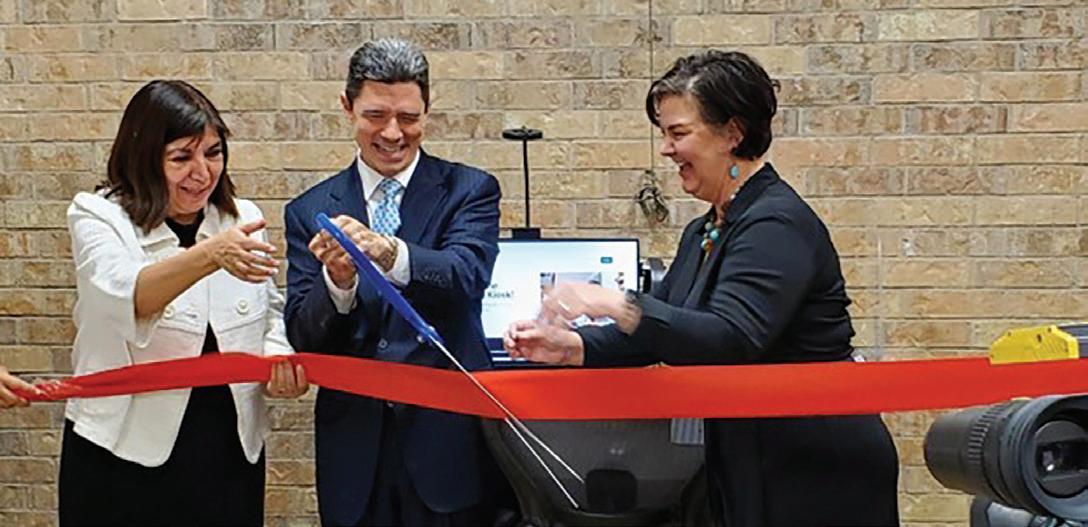
Austin’s first virtual court kiosk is now in operation.
The court kiosk is available free to the public at Little Walnut Creek Branch library, located at 835 Rundberg Lane.
The kiosk is part of the Virtual Court Kiosk Project, a venture of the Texas Legal Services Center (TLSC) and its funding body, the Texas Access to Justice Foundation (TAJF).
“The statewide pilot project aims to improve low-income Texans’ ability to receive free legal services through deploying accessible, physical virtual court kiosks to communities,” a TAJF press release said. “The kiosks act as virtual legal aid centers featuring computer stations implemented in high-traffic locations, where residents can access life-changing community resources like connecting with courts and receiving legal aid services.”
TLSC has previously opened kiosks in other Texas cities, including Longview, Brownwood, and Fort Worth.
“There are some members of the community who don’t have the technology necessary to be able to access court online, so we need to be able to have a place for those members of the community to come and be able to have the resources and the technology so that [they] can fully participate in the legal system,” said Texas Supreme Court Justice Brett Busby.
At these kiosks, Texans who don’t have reliable access to a computer, smartphone, or the internet can attend their court hearings online and receive free legal help in either English or Spanish.
“During the height of the COVID-19 pandemic, the state implemented court proceedings in virtual settings via video conferencing,” said Karen Miller, executive director of TLSC. “While this technology expands access to justice and increases court engagement, many Texans are left without the necessary resources
to navigate court a virtual setting and effectively participate. Virtual court kiosks remove this barrier and empower Texans across the state.”
Step-by-step instructions are available at the kiosks, as are phone support and chat help. The kiosks also enable Texans to access TexasLawHelp.org, where they can chat with attorneys to receive free legal advice.
Additional kiosks in Austin are planned, and TLSC plans to open a total of 250 kiosks throughout Texas.
Empowering self-represented litigants is one of TLSC’s primary missions. TLSC is also involved in a number of other areas, each with the goal of improving the lives of Texans:
• Advocating for financial security by helping clients recover pensions and file occupational driver’s license applications and criminal record expunctions.
• Guiding parents through their legal rights surrounding complicated issues such as co-parenting and child protective services.
• Educating modern families, such as grandparents, aunts, uncles, and older siblings who are raising their relatives’s children, regarding how to navigate healthcare, human services, and school systems.
• Working with interrelated organizations to teach the intersections between civil law, public benefits, healthcare, and law enforcement.
• Addressing health-harming legal needs through medical-legal partnerships to increase life quality and expectancy.
• Providing legal assistance to veterans to honor their service, promote their well-being, and respond to their unique needs.
• Helping to protect and solidify the wishes of those planning for end-of-life or loss of health.
• Advocating for reform of laws and public policy to effect systemic change to benefit all low-income Texans.
• Challenging discrimination against people with disabilities.
• Empowering Texans in rural areas by advocating for remote tools like legal lines, online chats, and video conferencing.
• Providing legal services to survivors of violence.
• Securing public benefits, such as SNAP, Medicaid, Medi-

care, SSI, SSDI, and TANF, for those who qualify.
TSCLC is actively recruiting volunteers. If you’re interested in donating your time and professional talents, contact Development Director Amanda Hill at ahill@tlsc.org.
TLSC will also offer student internships in August. AL
Me di a tor, Arbi t ra tor, Spe ci a l J udge a nd Li t i ga t i on Consult a nt
Senior District Judge Stephen Yelenosky
ABOVE (L-R): TAJF Executive Director Betty Balli Torres, Texas Supreme Court Justice Brett Busby, and Texas Legal Services Center Executive Director Karen Miller inaugurate Austin’s first virtual court kiosk.
22 AUSTINLAWYER | JUNE 2023
UT Law’s First-Time Bar Exam Pass Rate Increases
The Texas Board of Law Examiners has released the February 2023 bar examination statistics.
The University of Texas School of Law had nine first-time examinees, eight of whom passed.

There were another 25 repeaters, 16 of whom passed.
The first-time pass rate for UT increased from 80 percent in February 2022 to 88.89 percent in February 2023.
The repeater pass rate, however, declined from 81.25 percent in February 2022 to 64 percent in February 2023.
Of all the law schools, UT’s repeater pass rate for February 2023 was the highest.
Texas Tech had the exact same number of first-time examinees as UT, and had the same pass rate.
However, Texas Tech had 21 repeaters, nine of whom failed. Despite this, Texas Tech’s yearover-year repeater pass rate still
increased from 50 percent in February 2022 to 57.14 in February 2023.
Baylor had 30 first-time examinees, 23 of whom passed.
SMU had 10 first-time examinees, five of whom passed.
South Texas College of Law had 71 first-time examinees, 55 of whom passed.
St. Mary’s had 29 first-time examinees, 14 of whom passed.
Texas A&M had six first-time examinees, all of whom passed.
TSU had 28 first-time examinees, 17 of whom passed.
University of Houston had 23 first-time examinees, 16 of whom passed.
University of North Texas had eight first-time examinees, three of whom passed.
Additionally, there were 139 first-time examinees who had received their J.D. from out of state, 68 of whom passed.
There were 69 attorneys educat-
ed in the U.S. and licensed in another jurisdiction who were first-time examinees, 48 of whom passed.
There were 55 graduates from an accredited foreign law school or were otherwise non-U.S.-educated attorneys who were first-time examinees, 16 of whom passed.
There were no first-time examinees who were seeking reinstatement.
A total of 1,151 first-time ex-
aminees and repeaters took the exam, 44.57 percent of whom passed. This was a decline yearover-year, from a 50.33 percent pass rate in February 2022. AL
Family Law Specialist

Tim Whitten has practiced in family law since 1992. He has been certified as a Family Law Specialist by the Texas Board of Legal Specialization.
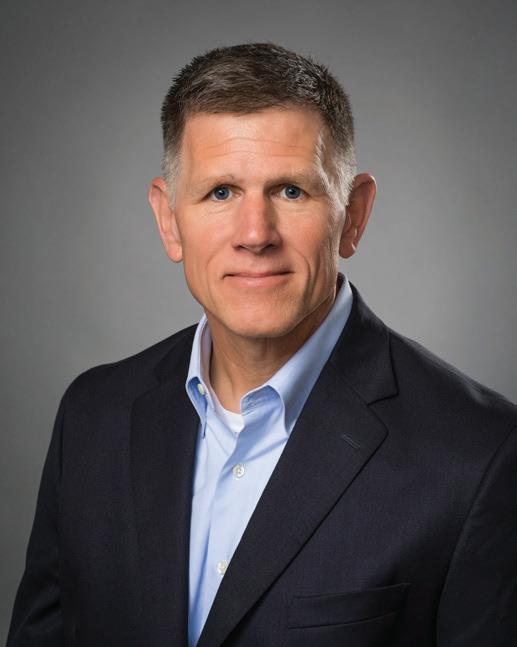
Collaborative Divorce. Helping couples problem solve their way through divorce. 7500 Rialto Blvd, Bldg One, Suite 250, Austin, Texas 78735 whitten-law.com | info@whitten-law.com | (512) 478-1011 Adoption Grandparent or Non-parent Rights Collaborative Law High-Asset Divorce Modifications of Custody, Possession & Support
Attorney tim@whitten-law.com *Kimberly A. Edgington kim@whitten-law.com Family Law Specialization JUNE 2023 | AUSTINLAWYER 23
Jamal Alsaffar, Lead Plaintiffs’ Attorney in Sutherland Springs Church Mass-Shooting Civil Case, Reflects on Trial Strategy
Alsaffar Touts Work-Life Balance as Key to Long Career
Jamal Alsaffar knew he wanted to be a trial lawyer before he was out of high school.
“I was always good at arguing, and then I read To Kill a Mockingbird and I wanted to be Atticus Finch,” he said. “I wanted to represent people against powerful interests.”
And there’s no more powerful interest in the world than the United States federal government.
Alsaffar was appointed lead attorney representing the plaintiffs in the civil case resulting from the Sutherland Springs Church mass shooting in November 2017.
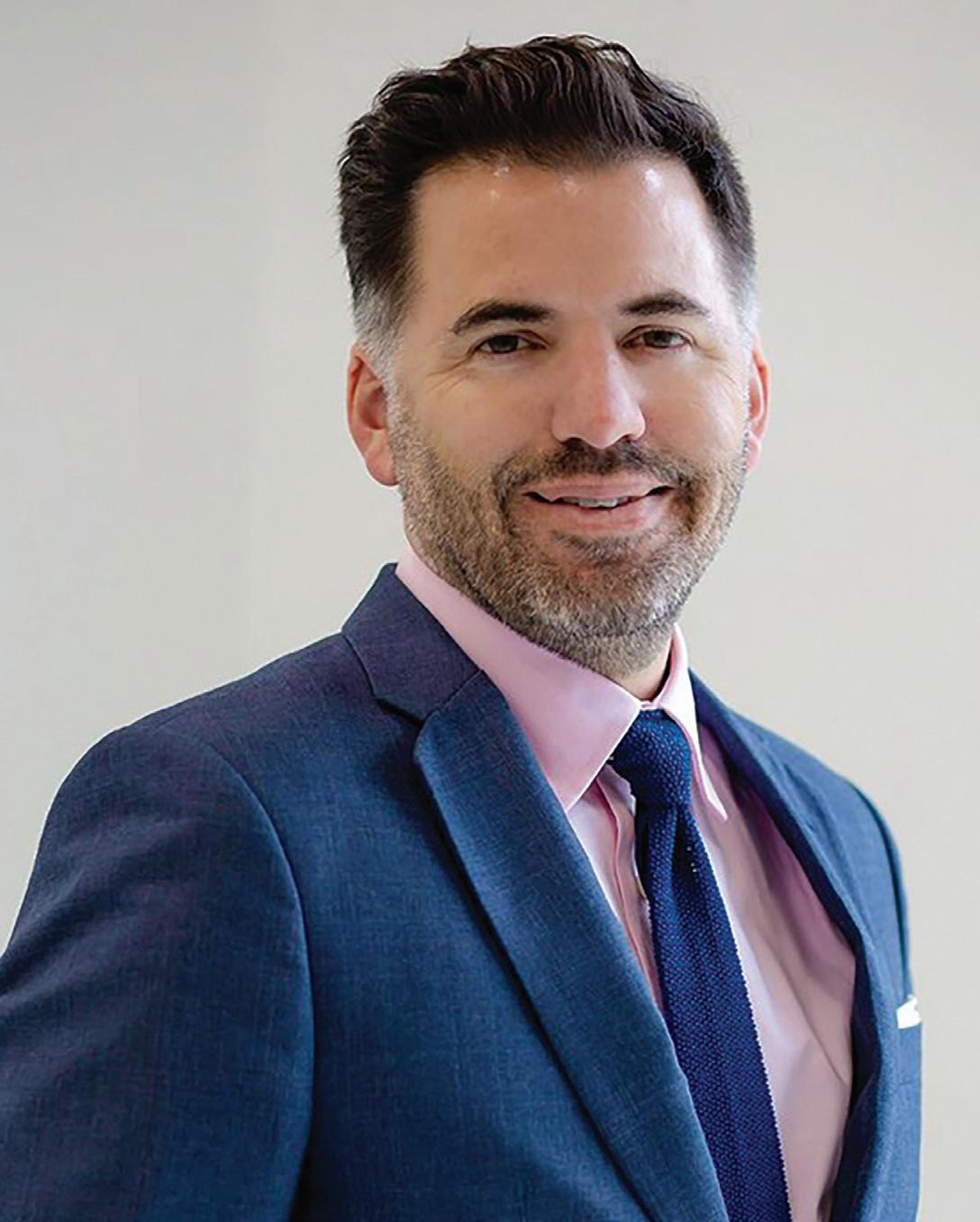
The Department of Justice settled all claims on April 5, 2023, agreeing to pay $144.5 million to the 75 plaintiffs, who alleged the United States was negligent for failing to report a convicted felon to the National Criminal Background Check System. This information, the plaintiffs alleged, and the U.S. District Court for the Western District of Texas–San Antonio Division agreed, would have prevented the shooter from purchasing guns from a federally licensed firearms dealer.
“Immediately when this shooting happened, my wife said, ‘We have to do something,’” Alsaffar said.
Alsaffar and his wife, Laurie Higginbotham, are both partners with National Trial Law in Austin.
“People ask, ‘Why did you take this case?’ and I say, ‘Because I was mad,’” Alsaffar said.
Higginbotham formed the initial framework for the case. The plaintiffs, many survivors of the Sutherland Springs shooting, as well as the victims’s families, then joined the case. Alsaffar litigated and tried the case with his other partner at the firm, Tom Jacob, who was instrumental in winning the case.
“The biggest challenge was
fighting the resources of the federal government,” Alsaffar said. “They brought all the king’s horses and all the king’s men to defend the case.”
National Trial Law handled most of the litigation and both trials.
“The most important thing to these families was that we made the country safer,” Alsaffar said.
According to Alsaffar, one of the biggest surprises of the case was that the federal government decided to try it.
“We just had overwhelming evidence that the government had extensive knowledge of the shooter’s threat to the community,” Alsaffar said. “He was threatening mass shootings when he was in the Air Force, and he was institutionalized twice and tried to escape while in the Air Force. They knew he’d raped six or seven women. We proved they knew all of that in trial.”
The families had to endure two trials: one for liability and one for damages. Each month-and-a-half trial forced them to relive the pain.
Another challenge Alsaffar identified was organizational: Alsaffar was appointed lead attorney, but only represented about a third of the plaintiffs. The others had their own representation, totaling about 20 other lawyers.
“Being appointed lead lawyer is humbling, especially when these other lawyers were some of the best in the country,” Alsaffar said. “They had to trust me as lead counsel, which was difficult because we all had our own ideas about how this case should be handled. I had to earn their trust, so I made sure I was as transparent as possible and was always in communication with them.”
Alsaffar said the most important aspect in working with so
We just had overwhelming evidence that the government had extensive knowledge of the shooter’s threat to the community. He was threatening mass shootings when he was in the Air Force, and he was institutionalized twice and tried to escape while in the Air Force. They knew he’d raped six or seven women. We proved they knew all of that in trial.
many other attorneys is a commitment to cohesion.
“There have been a lot of oth-
er cases where the lawyers on the same side fight or don’t get along,” Alsaffar said. “That di-
24 AUSTINLAWYER | JUNE 2023
vision hurts the case and the clients. But this group was so great to work with. Especially Justin Demerath in Austin and April Strahan in Houston. I leaned on them quite a bit to help me move this case along. They understood the enormity of what we were doing. As much of a challenge as it was having so many attorneys in one case, it really goes to show how committed to this case everyone was. Nothing the defendants did divided us.”
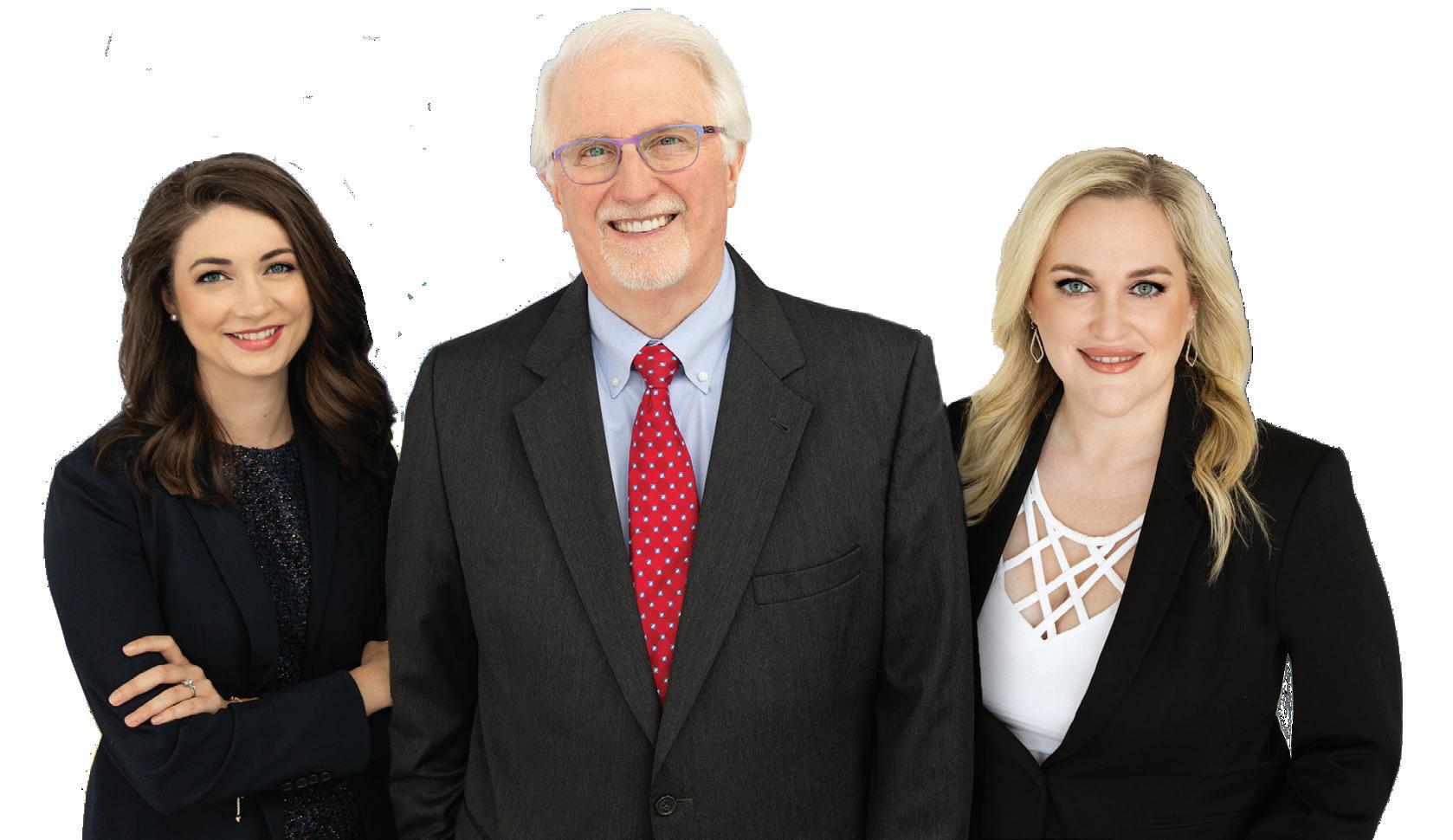

Alsaffar’s trial strategy involved trying to tell the stories of all the affected families in a way that would not numb the judge to the horror of the shooting.
“You can get numb to it if there’s too much information,” Alsaffar said. “We spent a lot of time with every single family member, structuring the case to be both impactful and efficient, and choosing which family member would be the best to tell their story.”
At the end of the damages trial, the court ordered the federal government to pay more than $230 million to the plaintiffs. The government appealed this amount, which was eventually settled for $144.5 million.
Beyond the monetary outcome, Alsaffar said he is satisfied with the legal outcomes of the case.
“We found that, for 30 years, the federal government was negligent in reporting criminal records to the background check system,” he said. “Because of these families’ bravery and willingness to bring this lawsuit, the F.B.I. has added almost 20 million criminal records to the background check system run by the Bureau and used by licensed gun dealers. We’ve had a federal court rule that background checks do prevent mass shootings. Will they prevent all gun violence? No. Laws against murder don’t either. But they severely reduce them.”
The case went on for five and a half years. During that time, Alsaffar faced challenges the likes of which he’d never experienced, such as the COVID-19 pandemic and lockdown, which made an already difficult case even harder.
“Trial is one of the most stressful things your body can
go through,” he said. “You don’t sleep, your adrenaline is at a ridiculously high level for a long time, you’re stressed because you care, and you’re also focusing on a tragedy. Multiply all that by 20 in this case.”
To handle the stress of this case, but also any trial, Alsaffar said, it’s important to be intentional about your health, as well as balancing your home life with your profession.
“To have a long career as a trial lawyer, it’s important to be balanced,” Alsaffar said. “Even when it seems impossible to do it. For
example, before some of the big arguments in this case, I would be sitting at the kitchen table late at night working. And I’d tell my oldest son, who was preparing for college at the time, to come sit with me to study for his exams. And a lot of the time, we’d stay up past midnight together. Even when you’re working, you can share those experiences with family because they’re the most important thing.”
Alsaffar encourages young lawyers and law students to practice work-life balance as soon as possible.
“You can’t be a good lawyer if you’re not a healthy and balanced person,” Alsaffar said. “And if you’re in a workplace where you can’t have that balance, then that’s not where you should be.” AL
JUNE 2023 | AUSTINLAWYER 25 We’re Here. We’re Open. We’re Ready to Help. Video Conferencing and In-person Social Distancing Now Available FAMILY LAW Divorce Custody Same-Sex Marriage Appeals Modifications A Client-Centered Approach to Family Law We understand. We can help. LAW FIRM, P.C. Mediations Arbitrations Attorney
Attorney
in Family
the
of Legal Specialization AustinDivorceLawyer.com 512.605.0999
Jimmy Vaught, Board-Certified in Family Law and Civil Appellate Law by the Texas Board of Legal Specialization
Jillian French Board-Certified
Law by
Texas Board
Attorney Erin Leake Board-Certified in Family Law by the Texas Board of Legal Specialization
CAPDS Forensic Project Saves Man From 60-Year Imprisonment by Debunking Faulty DNA Evidence
Overturned Conviction Marks Forensic Project’s Second Successful TCCA Case to Date
The Capital Area Private Defender Service (CAPDS)’s Forensic Project has successfully overturned the conviction of a man sentenced to 60 years in prison based on faulty science.
The crime for which Billy Faircloth was found guilty occurred in February 2011: A 62-year-old woman had gone to her car in the employee parking garage at 100 Congress Avenue around noon to take a nap. After an hour, she headed for the elevators to return to work. As she was walking, she was struck in the head with what she said was a brick.
As the attacker continued hitting her, she turned around and saw he was wearing a yellow shirt.
Two bystanders came to the woman’s aid as the attacker fled. Security was called, and when the police arrived they arrested Faircloth, saying his clothing matched the description of the attacker’s.
A rock found in the parking garage’s stairwell, as well as a cigarette pack, were sent to the Austin Police Department’s DNA laboratory for testing.
In summer 2016, the APD DNA lab was shut down after the Texas Forensic Science Commission conducted an audit and found issues with materials-handling and testing protocols. In 2021, the Austin City Council voted to move the lab from the police department’s authority and make it an independent entity.
Regardless, the DNA testing results of the cigarette pack and the rock, and the victim’s statement that her attacker was wearing clothes similar to Faircloth’s, led to Faircloth’s conviction on Feb. 15, 2012.
Shortly after the APD DNA lab’s closure in 2016, the APD DNA Review Project was established by the Travis County District Attorney’s Office and
CAPDS. The goal of the project is to review cases that were decided in large part due to DNA evidence analyzed by the former APD DNA lab, and to provide post-conviction litigation if necessary.
On July 20, 2022, CAPDS filed a writ application and other post-conviction pleadings asserting, among other things, that Faircloth’s conviction should be reversed under Texas’s “junk science statute.” The writ was supported by a report from DNA expert Dr. Bruce Budowle.
In October 2022, Travis County District Court Judge Selena Alvarenga recommended, with Travis County District Attorney Jose Garza’s agreement, that Faircloth be granted relief based on the junk science statute. Faircloth has been out on bond since then.
On March 29, 2023, the Texas Court of Criminal Appeals adopted Alvarenga’s recommendation. The charge has been dismissed and Faircloth will not be retried for the charge of aggravated assault.
“The Court of Criminal Appeals’ ruling underscores the importance of the review and litigation of these cases,” said Stacie Lieberman, director of post-conviction programs for CAPDS.
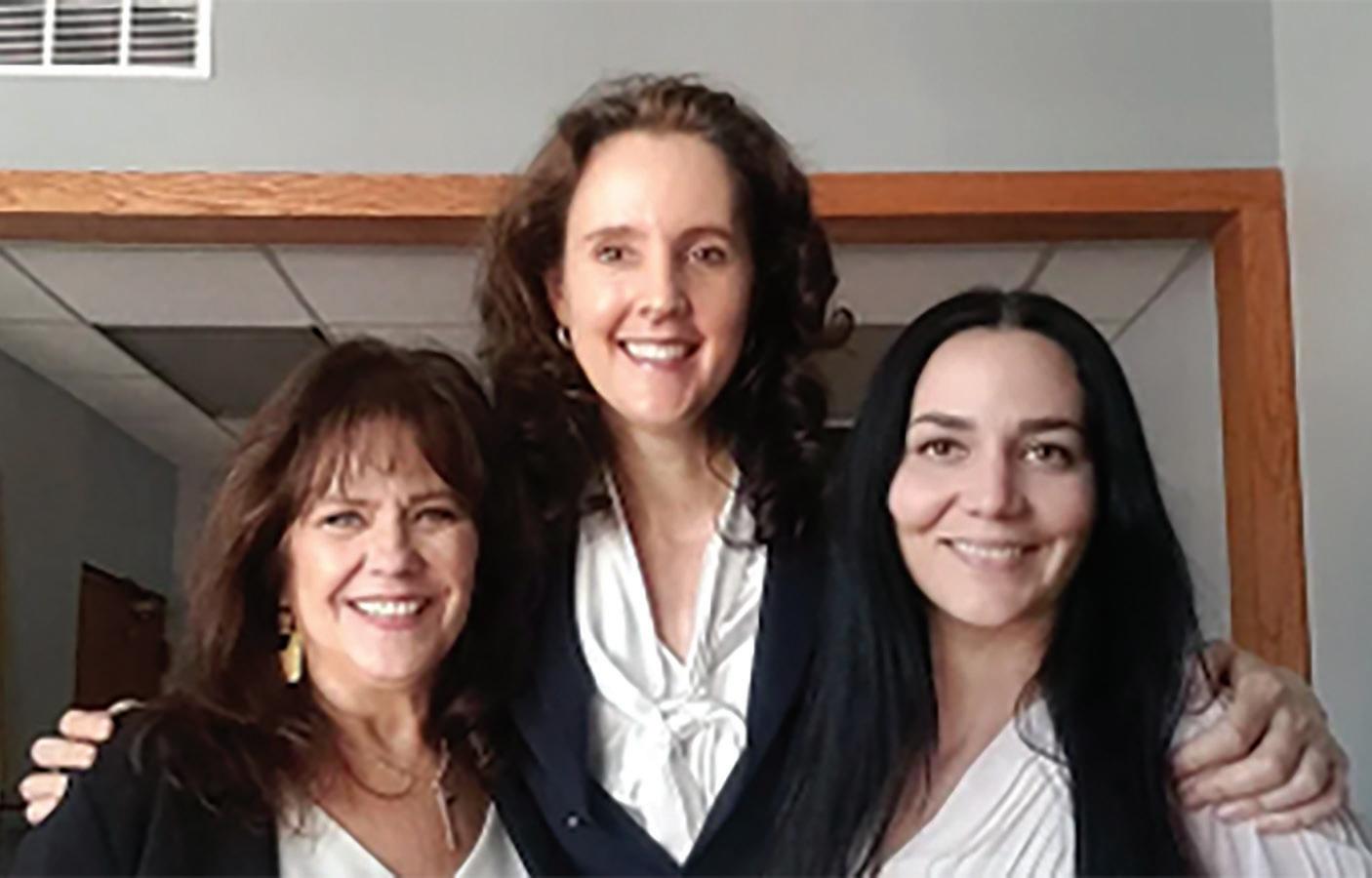
“We are thankful for the court’s decision and for the commitment by the District Attorney’s Office to work with us to correct unjust convictions that were the result of the use of unreliable DNA evidence. We are also grateful for the commitment of Travis County, the City of Austin, and the Travis County judges to correct injustices that arose from the problems in the former lab.”
Jane Eggers is the supervising senior attorney for the APD DNA Review Project and served as lead counsel in the effort to overturn Faircloth’s conviction.
“We are very pleased that the Court of Criminal Appeals ruled
in Mr. Faircloth’s favor, granting him much-deserved post-conviction relief,” she said.
Faircloth is enjoying his freedom and privacy now, declining to provide any further comment other than that he is grateful for the Court of Criminal Appeals’s decision and appreciates the great work of the Forensic Project.
Faircloth’s case is the second that CAPDS’s Forensic Project has brought before the Texas Criminal Court of Appeals.
In January 2021, Travis County District Judge Cliff Brown dismissed the charge of a controlled substance with intent to deliver against Lamarcus Turner at the recommendation of Travis County District Attorney Jose Garza. CAPDS’s Forensic Project
argued, and the Texas Court of Criminal Appeals agreed, that the DNA evidence in the case analyzed by APD’s lab was unreliable. The Forensic Project is funded through an interlocal agreement between Travis County and the City of Austin and a grant from the United States Department of Justice. Learn more about CAPDS at CAPDS.org and more about the Forensic Project at ForensicProject.org. AL
26 AUSTINLAWYER | JUNE 2023
ABOVE (L-R): Attorney Belinda Wright, lead counsel Jane Eggers, and investigator Christen Chipman all worked to overturn Billy Faircloth’s conviction.
We are thankful for the court’s decision and for the commitment by the District Attorney’s Office to work with us to correct unjust convictions that were the result of the use of unreliable DNA evidence.
Second Annual Drag & Justice Fundraiser Nearly Doubles Amount Raised in 2022
BY JESSICA WITTE, STATE OFFICE OF ADMINISTRATIVE HEARINGS
The Austin Bar Association’s LGBT Law Section hosted its second annual Drag and Justice fundraiser on April 26, 2023. This year’s event raised more than $22,000, nearly double the previous year’s total, to support the section’s scholarship fund. The LGBT Law Section awards scholarships annually to LGBTQ+ law students at Texas law schools.

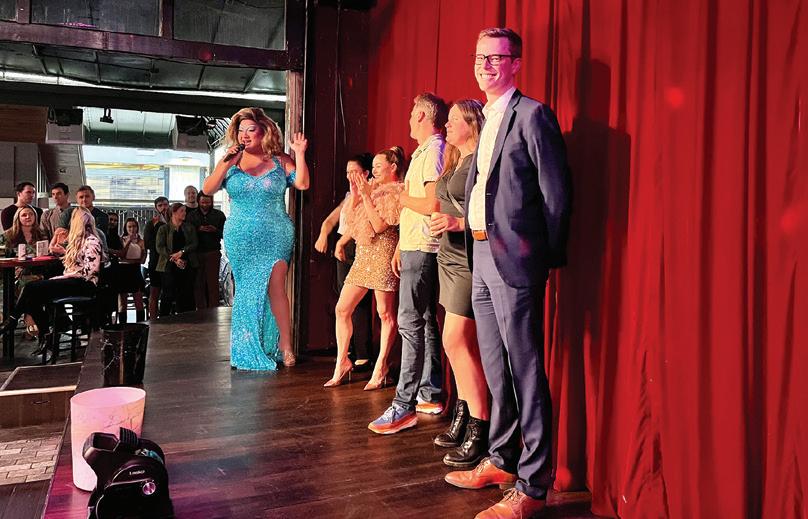


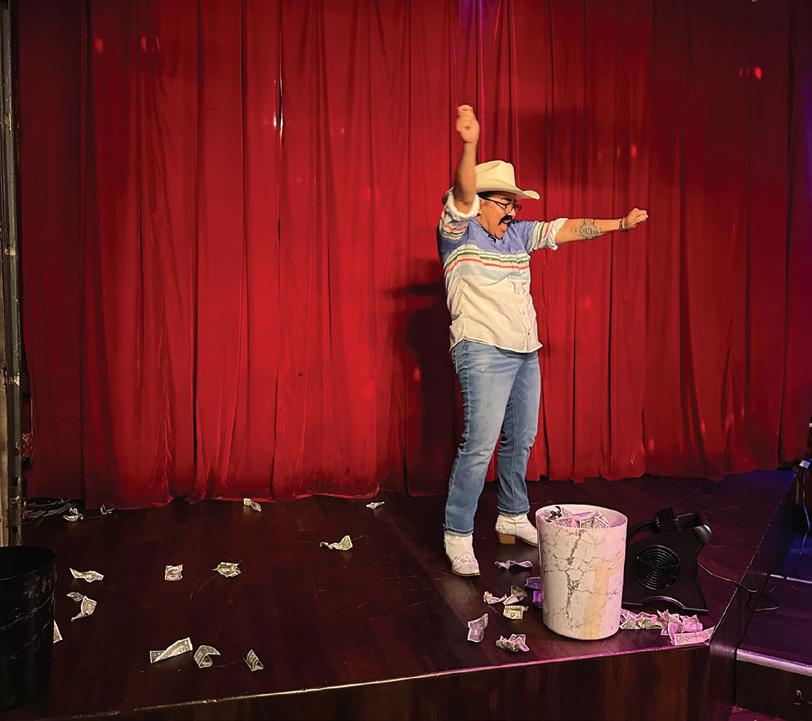
The event featured performances from several local drag queens, as well as some noteworthy amateurs. Judge Denise Hernandez, County Court at Law No. 6, a former section chair, reprised her showstopping performance from last year’s show. The crowd was also delighted by a performance from one of the law students who was a 2022 recipient of one of the section’s scholarships.
The section is grateful to the many generous sponsors who helped make this year’s event a resounding success. The celebratory evening brought together a diverse cross-section of the Austin legal community. The section is also appreciative for the attendance of so many local luminaries, including members of the judiciary.
To learn more about the LGBT

JUNE 2023 | AUSTINLAWYER 27
Performers and attendees enjoying the Drag & Justice Fundraiser at Oilcan Harry’s on April 26, 2023. (UPPER RIGHT): Co-chair of Austin Bar DEI Committee Elliott Beck and AYLA President-Elect Sarah Harp join other Austinites in an on-stage dance-off . (LOWER RIGHT): Judge Denise Hernandez of County Court at Law No. 6 performs.
You’re busy looking out for your clients’ needs. Who’s looking out for yours? Jim Kaighin, Jr., CFP Financial Professional ® 3305 Northland Dr., Suite 414 Austin, TX 78731 512-302-6051 kaighinjr@momentumin.com Member: FINRA/SIPC Law Section or donate to the scholarship fund, visit the section’s website at https://www.austinbar.org/?pg=lgbtqlaw. We look forward to an even bigger event in 2024! AL
16th Annual Color of Justice Program Brings Together Students and Professionals
BY SENIOR JUDGE ORLINDA NARANJO, 419TH DISTRICT COURT (RET.) AND RACHEL LUNA, LUNA LAW PLLC
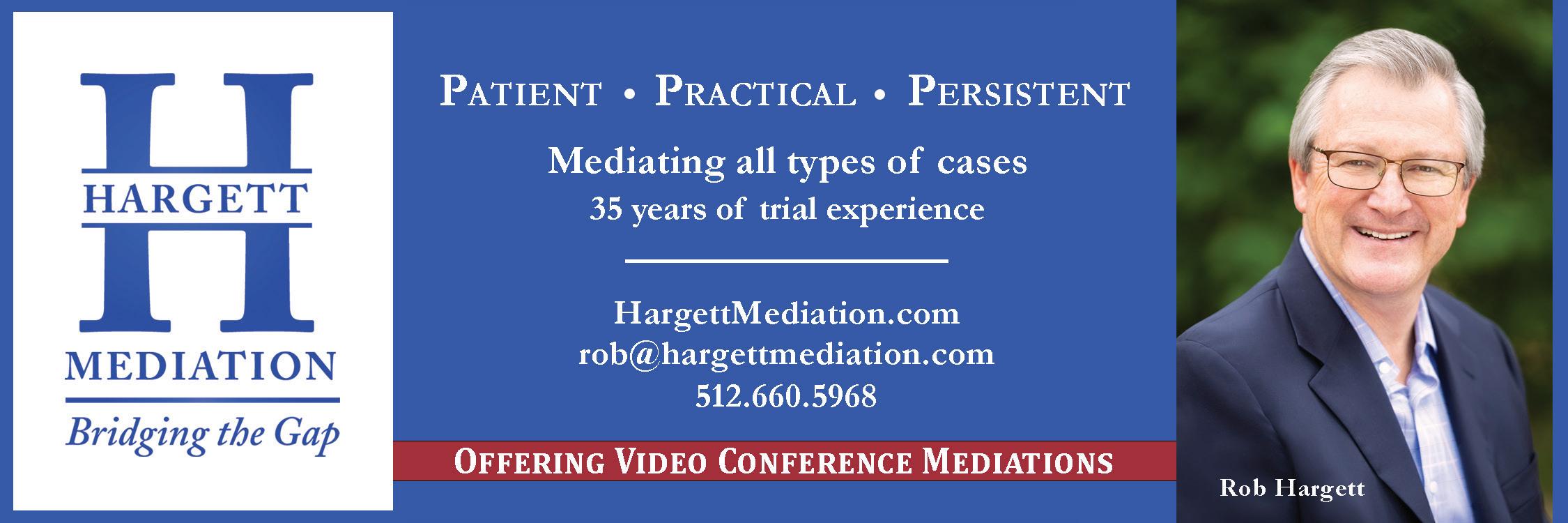
The 16th annual Color of Justice Program was held on April 12, 2023, at The University of Texas School of Law. The event was sponsored by the National Association of Women Judges (NAWJ), the Travis County Women Lawyers’ Association (TCWLA), and the UT School of Law’s William Wayne Justice Center for Public Law. The event was attended by students from Travis High School and the Bertha Means Sadler Young Women’s Leadership Academy.
The event featured two panel discussions whose speakers shared their personal experiences and backgrounds, and discussed the importance of lawyers and judges in our society.
The first panel at the event was moderated by Rachel Luna of Luna Law PLLC and featured Chris Mugica, partner at Jackson Walker LLP; Elissa Henry of Elissa Henry Law Firm; Assistant City Attorney Angela Rodriguez; and Daniela Peinado of Graves, Dougherty, Hearon & Moody.
The second panel was moderated by Hon. Orlinda Naranjo, former judge of the 419th District Court, and featured Hon. Gisela Triana of the Third Court of Appeals, Hon. Maria Cantú Hexsel
of the 53rd Civil District Court, Hon. Selena Alvarenga of the 460th Criminal District Court, and Hon. Raul Gonzalez, Precinct 4 justice of the peace.
The NAWJ Access to Justice Scholarship was awarded to Emani Brown, a second-year law student at UT, for her “demonstrated and passionate commitment to public-interest law.” Brown then addressed the audience, sharing her personal struggles of her father being imprisoned, being raised by a single mom, being biracial, and financial struggles.
In 2022, Brown was named one of the William Wayne Justice Center’s Public Service Scholars. She serves on the Justice Center’s Student Advisory Board and is also involved in UT’s Chicano/Hispanic Law Students Association, the Thurgood Marshall Legal Society,
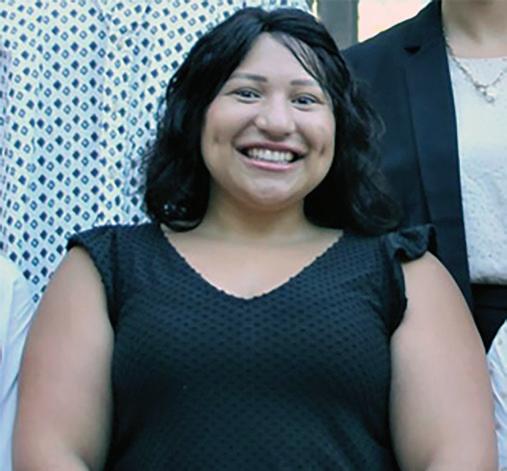
and the Texas Hispanic Journal of Law and Policy
Brown has previously participated in pro bono projects, such as Pro Bono in January and the Mithoff Pro Bono Program’s Parole Project. Pro Bono in January, or “PBinJ,” involves a group of law students from UT traveling to the Texas-Mexico border to participate in law-related volunteer projects. The Parole Project assists women incarcerated by the Texas Department of Criminal Justice in their efforts to obtain parole.

Brown spent the summer of 2022 working with Texas RioGrande Legal Aid in Austin and is the 2022-23 Scott Ozmun Fellow of the Volunteer Legal Services of Central Texas.
Thank you to TCWLA; Graves, Dougherty, Hearon & Moody; Jackson Walker LLP, Elissa Henry
Law Firm; and Luna Law PLLC for sponsoring the program’s luncheon. Thank you also to the judges, attorneys, and law students who spoke with the younger students to hopefully inspire the next generation of legal professionals! AL
(ABOVE): Hons. Triana, Cantú Hexsel, Alvarenga, Gonzalez, and Naranjo join some of the students and teachers for a photo in the Eidman Courtroom. (BELOW): Emani Brown, UT School of Law Class of 2024, is this year’s recipient of the NAWJ’s $1,000 Access to Justice Scholarship.
28 AUSTINLAWYER | JUNE 2023
Texas Senate Celebrates Texas Women Judges Day
BY SENIOR JUDGE ORLINDA NARANJO, 419TH DISTRICT COURT (RET.)
More than 100 women judges from throughout Texas gathered at the Capitol building to celebrate Texas Women Judges Day on April 24, 2023.
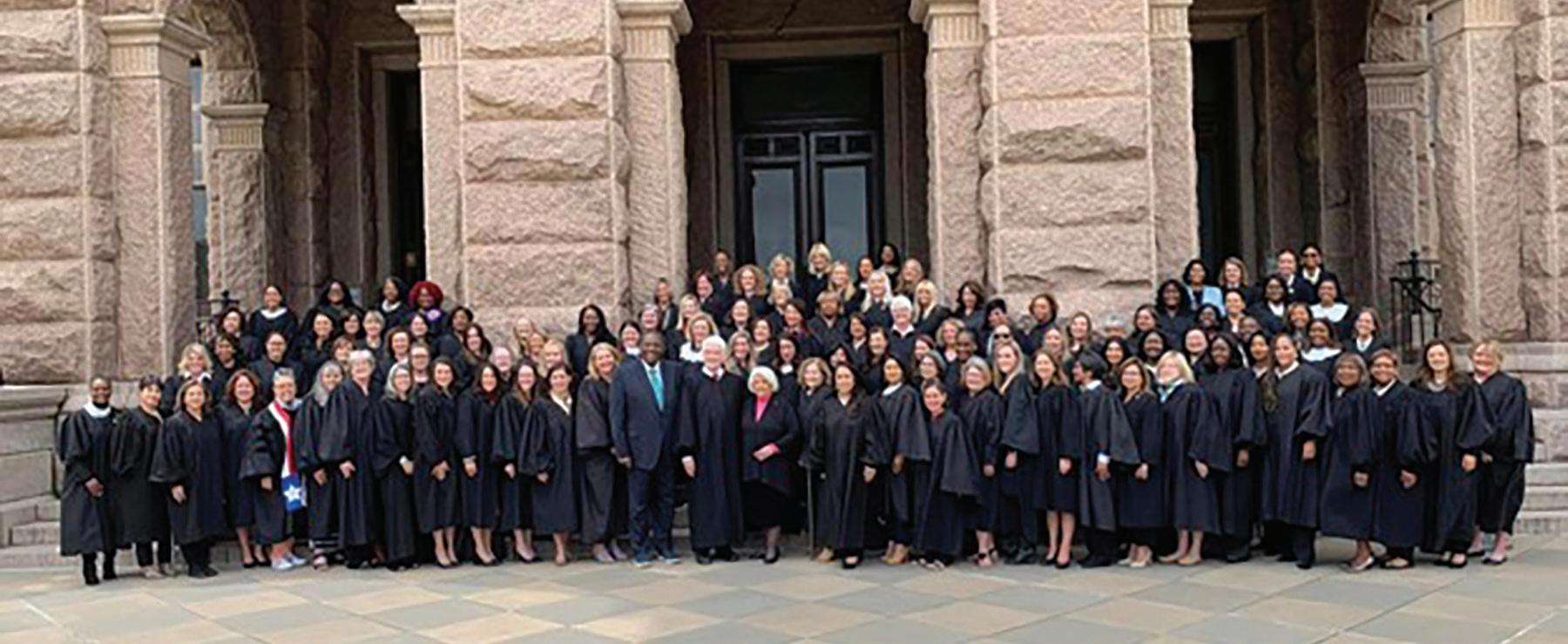
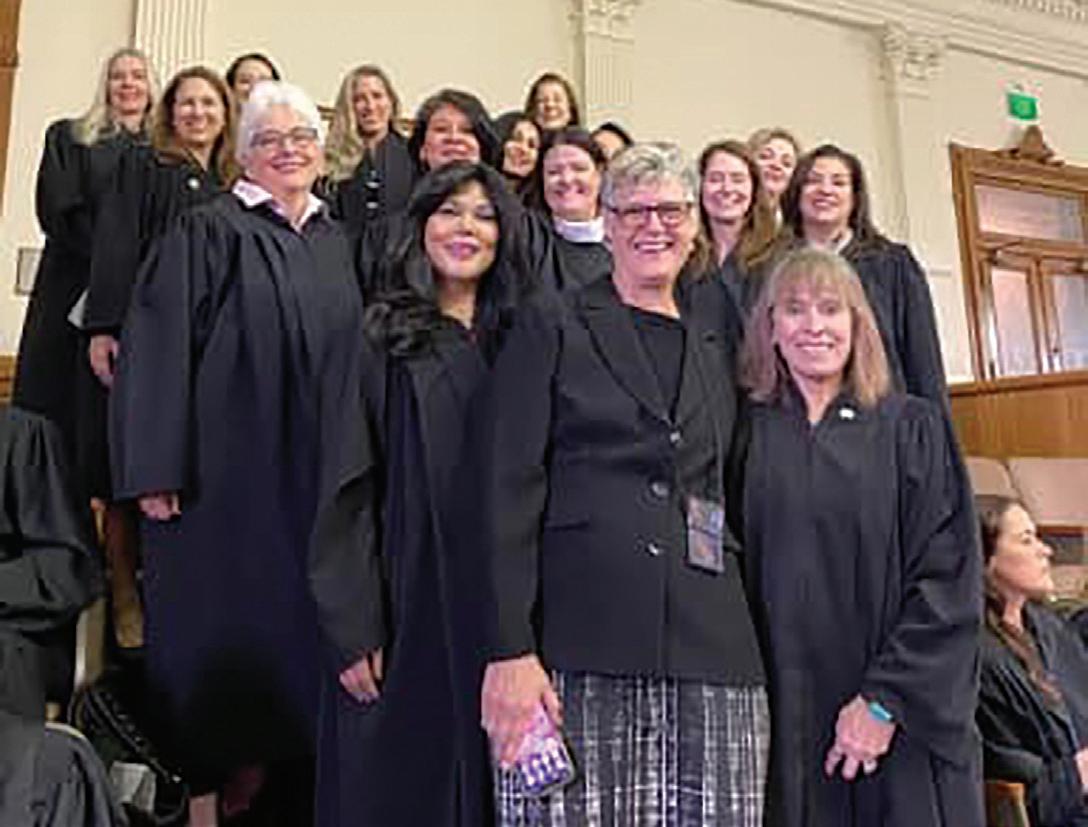
Among those who attended were women who sit as justices on the Texas Supreme Court, courts of appeals, district courts, county courts of law, justices of the peace, and municipal courts.
They assembled in the Senate gallery as Sens. Judith Zafferini and Royce West declared April 24, 2023, Texas Women Judges Day.
Other senators individually stood and praised the women judges from their respective districts. Judges from 23 of the 31 state senate districts attended the event.
The proclamation also recognized the firsts in the Texas judiciary.
In Travis County, some of the firsts were:
• 1973 – Harriett Mitchell Murphey was appointed to the municipal court and became the first African American judge;
• 1994 – Orlinda Naranjo was elected to Travis County Court at Law No. 2, the first Latina elected to a countywide judicial bench.
Other firsts throughout Texas include:
• 1910 – Hortense Ward was the first woman to pass the Texas bar and, in 1915, she, Hattie Henenbert, and Ruth Brazzil were appointed special Supreme Court Justices, the first all-woman high court in the United States;
• 1935 – Sarah Hughes was the first woman appointed state district judge; in 1936, Hughes was the first woman appointed district judge; in 1961, she was the first woman elected federal district judge; and in 1963, she was the first and only woman to swear in an American president;
• 1983 – Elma Salinas Ender was the first Latina state district judge;
• 1992 – Wendy Duong was
the first Vietnamese American woman judge;
• 1992 – Gaynelle Griffin Jones was the first African American woman appellate judge;
• 1993 – Linda Reyna Yaña was the first Latina appellate judge;
• 2005 – Texas’s Fourth District Court of Appeals was the first all-woman appellate court in the United States;
• 2019 – Rabeea Sultan Collier was the first Muslim American and first Pakistani American woman judge;
• 2020 – Frances Bourliot was the first Asian American appellate judge;
• 2021 – Texas’s Fourth Court of Appeals was the only all-woman appellate court in the U.S.;
• 2023 – Manpreet Monica Singh was the first Sikh woman judge.
Women also comprise:
• 33 percent of the Texas Supreme Court (Justices Jane Bland, Rebecca Huddle, and Debra Lehrmann);
• 44 percent of the Court of Criminal Appeals (Judges Sharon Keller, Barbara Hervey, Mary Lou Keel, and Michelle Slaughter);
• 49 percent of intermediate appellate court judges;
• Nine percent of county judges;
• 44 percent of general jurisdiction court judges;
• 25 percent of limited and specialty court judges; and
• 39 percent of municipal court judges.
After a photo opportunity with Texas Supreme Court Justice Hecht and Sens. West and Zafferini on the Capitol steps, the judges attended a reception at the Texas Law Center. The reception was sponsored by the National Association of Women Judges (NAWJ) District 11 and Thompson Coe LLP.
The attendees were greeted by NAWJ President-Elect Hon.
JUNE 2023 | AUSTINLAWYER 29
Karen Sage of the 299th Criminal District Court and Hon. Gina Benavides of the 13th Court of Appeals and NAWJ District 11’s director. AL
(ABOVE) Attendees of Texas Women Judges Day gathered in front of the Capitol for a group photo. (BELOW) Sen. Sarah Eckhardt (front center) joined Travis County women judges at the Capitol for Texas Women Judges Day.
Dick the Butcher, Revisited
BY CLAUDE DUCLOUX
The opinions expressed in Entre Nous are those of the author and do not necessarily represent the views of the Austin Bar Association membership or the Austin Bar Association board of directors.
“The first thing we do, let’s kill all the lawyers.”
-- Henry VI, Part 2, Act IV, Scene 2.
Ican’t believe what’s happening,” lamented my old friend, Mike. “It’s terrible!”
Mike (not his real name; his real name is Michael) is my old Army buddy who is now retired and lives in Florida. We were best buddies 50 years ago, barracks-mates serving the First Cavalry Division, and we’ve kept in touch, despite the separate paths of our lives and careers.
“What? What’s so terrible?” I asked.
“Why, the unending attacks on my heroes. You can’t even express yourself anymore without some jerk suing you! I thought this country guaranteed free speech without the threat of persecution. I tell ya, we’re going down the drain!” (The faint sound of Maria Bartiromo could be heard in the background during our call.)
Clearly an unappreciated lecture on the difference between free speech versus fraud, libel, and slander would only increase his suffering. But I couldn’t help drawing him out about his heroes.
“Who are we talking about here?”
“My journalists, leaders, patriots seeking freedom!” he blurted.
Knowing Mike’s preferred source of news, I can agree Mike is right: It’s been a terrible spring for liars.
Terrible.
Fakes, pretenders, phonies, hypocrites, swindlers, and deceivers have not done well. And, real-
ly, it’s so unfair. Mike was promised so much by the hustlers who benefit from his confidence that it’s an insult to his amygdala to watch them burn.
My final question before moving on was, “So what do you think led to this downfall?”
With immediate fire, he responded, “It’s you damn lawyers and your judges. You hate these people.”
I admit to feeling a burst of pride. The Rule of Law—which is sputtering around with a warning light on the dash—still has a few drops of gas in the tank.
But so many of us are inextricably addicted to the cocaine rush of our favorite liars. They make us feel better. They let us sleep at night in the comfort of our imagined universe. They create enemies that are so easy to hate. They keep us increasingly warm in the frying pan of confirmation bias. Mmm, please don’t wake me up—this water’s getting warmer!
Hanging out with our friends in that parallel universe (a.k.a. “Hoaxatopia”), we live in a world of false consensus, because everyone that we like believes the same lies we do! And face it, we love feeling this way. In Hoaxatopia, there’s no need for evidence. Here, empathy is for suckers. It’s a lot easier to get a good night’s sleep when you don’t have to engage in empathy for whiners who expect fair treatment or equal protection under the law. And creating enemies to absorb blame and absolve us from our own guilt and shame renders immediate absolution.
This rocks!
In this world, if someone doesn’t agree with you, they are either misinformed, uninformed, or simply biased against reality. Our beliefs become so engrained that we begin to engage in what psychologists call “naïve realism.” Our world is the truth—we simply can’t imagine that we might be
misinformed. Because we’re not!
But I remind you, the best way to challenge such demagogues, fakes, and pretenders is to require proof in a court of law. It is the only door left in America that leads to a room which requires you to prove or defend the facts you use to attack others. And indeed, in the past six months or so, a lot of people who lied for fame (and a lot of profit) had to give some of it back.
Examples abound:
• Steve Bannon: The former chief White House strategist was sentenced to four months in prison for contempt. He was pardoned by Trump for his involvement in the “We Build the Wall” swindle, which resulted in a four-year prison term for his colleague, Brian Kolfage.
• Fox News: Intentional lying led to a voluntary transfer of $787.5 million to avoid a jury’s consideration of the breathtaking expanse of lies and libelous accusations intended to “keep their audience happy,” even though internal communications completely exposed the intentional nature of the lies.
• Mike Lindell: I don’t care how snuggly Mike Lindell’s pillows are, Mike will not sleep well after being hit with a $5 million arbitration award (an arbitration he insisted upon) when it was proved his claim that China interfered with the 2020 election was not supported by data, which he dared anyone to challenge.
• Tucker Carlson: Fox News host, who regularly espoused virulently racist conspiracy theories, elevated white nationalism, and brazenly lied on the nightly airwaves, was suddenly fired. Carlson’s plethora of private texts were a clear foundation for the evidence demonstrating Fox’s duplicity and knowledge that the allegations they repeatedly asserted were false.
• January 6 Raiders: Despite
the lies they were told to justify their destructive attack on the U.S. Capitol, approximately 1,000 people have been charged (as of March 2023). 541 of those have already pled guilty (several hundred to felonies). Neither Hoaxatopia (nor their cheerleader) ever came to their rescue.
• Disbarred Lawyers: More than 111 lawyers related to the Trump administration have been investigated and 17 sanctioned thus far for filing false claims related to the election lawsuits.
Many of us became lawyers because we wanted to make a difference. Perhaps our dreams were irrational, and still are, but so many millions of citizens still believe in an American Dream that renders justice fairly, that compensates wrongs, and punishes those who have unfairly taken advantage of others. I still believe it should, and I won’t ever stop, although I do experience some exasperation from time to time.
But bad men everywhere know that the Rule of Law stands in their way. Law is a powerful anti-toxin to the lies and manipulation that profit these bad men. One such bad man was Shakespeare’s villainous character, Dick the Butcher. Dick was the righthand man of Jack Cade, who led a rebellion against King Henry.
For society to fall, they must kill its protectors.
Truth is not malleable. It is the indispensable cornerstone of our quest for justice.
Perhaps if Shakespeare updated his play today, Dick the Butcher might change to Dick the My Pillow guy.
Keep the faith. AL
“ 30 AUSTINLAWYER | JUNE 2023
ENTRE NOUS
continued from page 1
these issues, yet questions and problems persist, most frequently during the investigation phase. Lack of sufficient communication during this phase remains one of the most common complaints. I would support the designation of a ‘point person’ within the SBOT Office of Chief Disciplinary Counsel who would be tasked with fielding and responding to questions and complaints. Greater clarity and definition could be provided regarding the limited role of complainants in the grievance process as witnesses, but not parties in the process.”

Benesh was also asked how the State Bar can remain relevant and meaningful to its members.
“As I’ve traveled around the state during this campaign, I’ve heard many lawyers question whether their views are heard and their participation wanted,” he said. “We have to make sure every attorney in Texas—regardless of socio-demographic status, location, firm/office size, or area of practice—regards the SBOT as their bar. We need to ensure the SBOT’s committees and sections represent cross-sections of our profession. We need to commit to sponsoring CLE courses and SBOT meetings at locations throughout Texas. And we need to improve SBOT’s website to make it easier to navigate and to make answers to common questions and concerns easier to find.”
Other Austin Bar/AYLA candidates were also successful in their State Bar election bids.



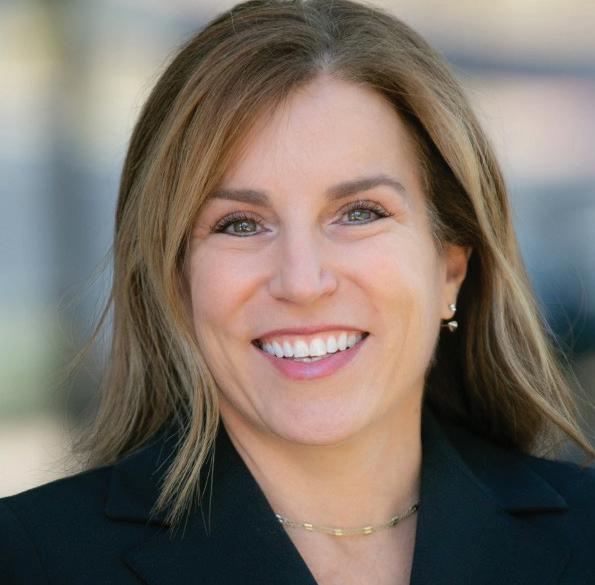
Rudolph “Rudy” Metayer was elected to the State Bar’s board of directors for District 9, Place 1. Austin Lawyer Editor-in-Chief Rachael K. Jones was elected to the Texas Young Lawyers Association’s board of directors for District 8, Place 1. AL

PEER-LEVEL CONTRACT ATTORNEYS & PARALEGALS Expertly matched to your needs and culture Jeremy Thompson Director, Legal Recruiting & Placement jthompson@latitudelegal.com Lauren Sheinberg Director, Legal Recruiting & Placement lsheinberg@latitudelegal.com Jeff Lilly Partner, Client Services jlilly@latitudelegal.com 512-956-8980 | LATITUDELEGAL.COM • Experienced legal talent for when quality matters • Peer-to-peer client service experience • Cost-efficient & flexible solutions • Contract engagements, contract-to-hire & permanent placement Flexible legal talent is closer than you think. CONTACT US TODAY.
Apple Leasing 6 Armbrust & Brown, PLLC 7 Bollier Ciccone LLP 7 Broadway Bank 32 Cofer & Connelly, PLLC 5 Constable 5 9 Gunn, Lee & Cave, P.C. 18 Hargett Mediation, LLC 28 Judge Stephen Yelenosky 22 Knolle, Holcomb, Callahan & Taylor, P.C.13 Lakeside Mediation Center 7 Latitude 30 Laurie Ratliff LLC 13 Law Office of Tim Whitten 23 LawPay 2 Momentum Independent Network 27 Noelke Maples St. Leger Bryant, LLP 13 Patrick Keel 15 Rose Resolution Group 19 Scott Baker Mediation, LLC 17 She Spies Private Eye, Inc. 16 Texas Lawyer Insurance Exchange 3 The Snell Law Firm, PLLC 11 The University of Texas at Austin 9 Thomas Esparza, Jr. P.C. 3 Vaught Law Firm 25 West, Webb, Allbritton & Gentry, P.C. 9 ADVERTISERS JUNE 2023 | AUSTINLAWYER 31

WEALTH & PRIVATE BANKING Private Banking with Customized Lending Solutions1 As a Private Banking client, you will have access to various lending options customized to your needs to help you achieve your personal and business financial goals. Your dedicated Private Banker will work with you to create solutions, including terms and rates, that allow you to maximize liquidity and investment objectives. We offer a wide array of solutions including: • Revolving Lines of Credit • Professional Investment Loans • Professional Mortgage Loans • Luxury Vehicle Loans Experience premium modern banking with Broadway Bank. broadway.bank/private • (512) 465-6564 1 To be eligible, you must qualify to be a Broadway Bank Private Banking client. Membership qualifications apply for certain programs. All loans subject to credit and collateral approval (if applicable). Programs, interest rates, terms and conditions are subject to change without notice. Other restrictions and limitations may apply. Member FDIC. Rev. 04/23 #1081234997





































 BY BRIAN TAGTMEIER, SHEEHY WARE PAPPAS & GRUBBS, P.C.
BY BRIAN TAGTMEIER, SHEEHY WARE PAPPAS & GRUBBS, P.C.

























 LEFT (from left): Carmona, Earle, C. Garcia, M. Garcia, Jones, O’Brien, Parks, Wood Shepherd, Yeakel.
LEFT (from left): Carmona, Earle, C. Garcia, M. Garcia, Jones, O’Brien, Parks, Wood Shepherd, Yeakel.



































































